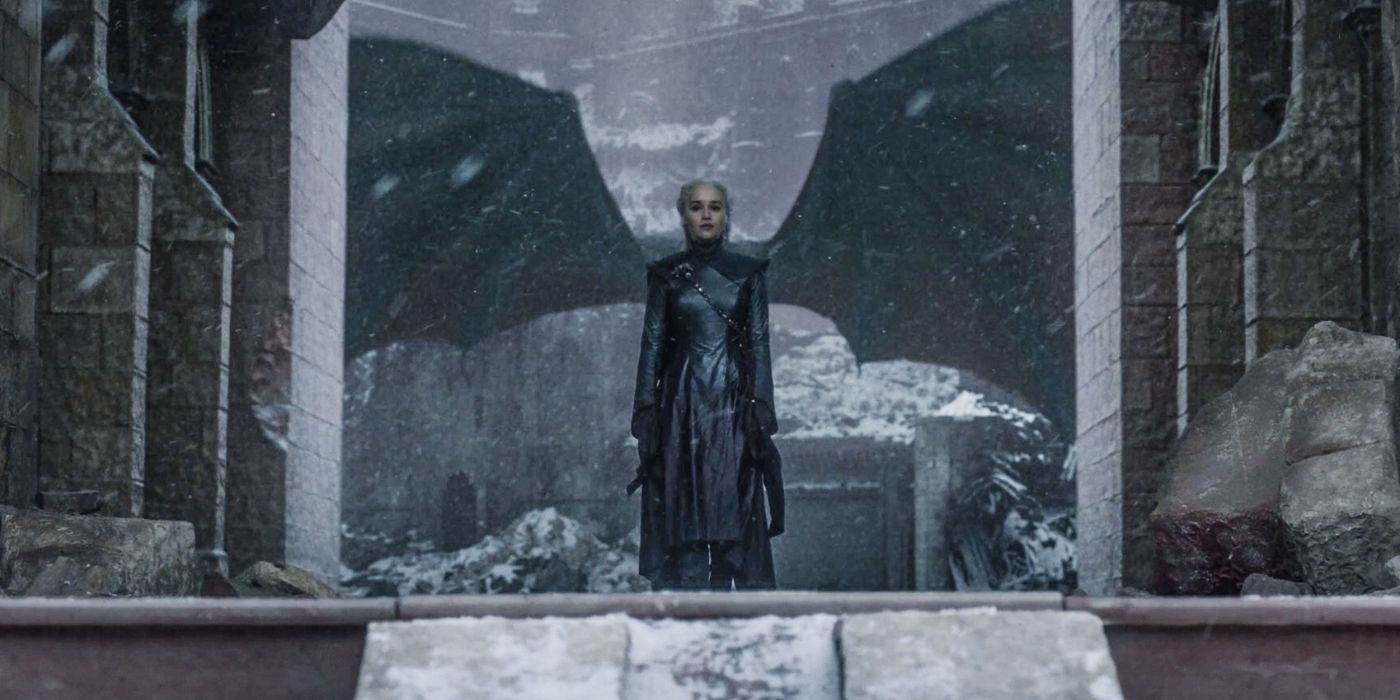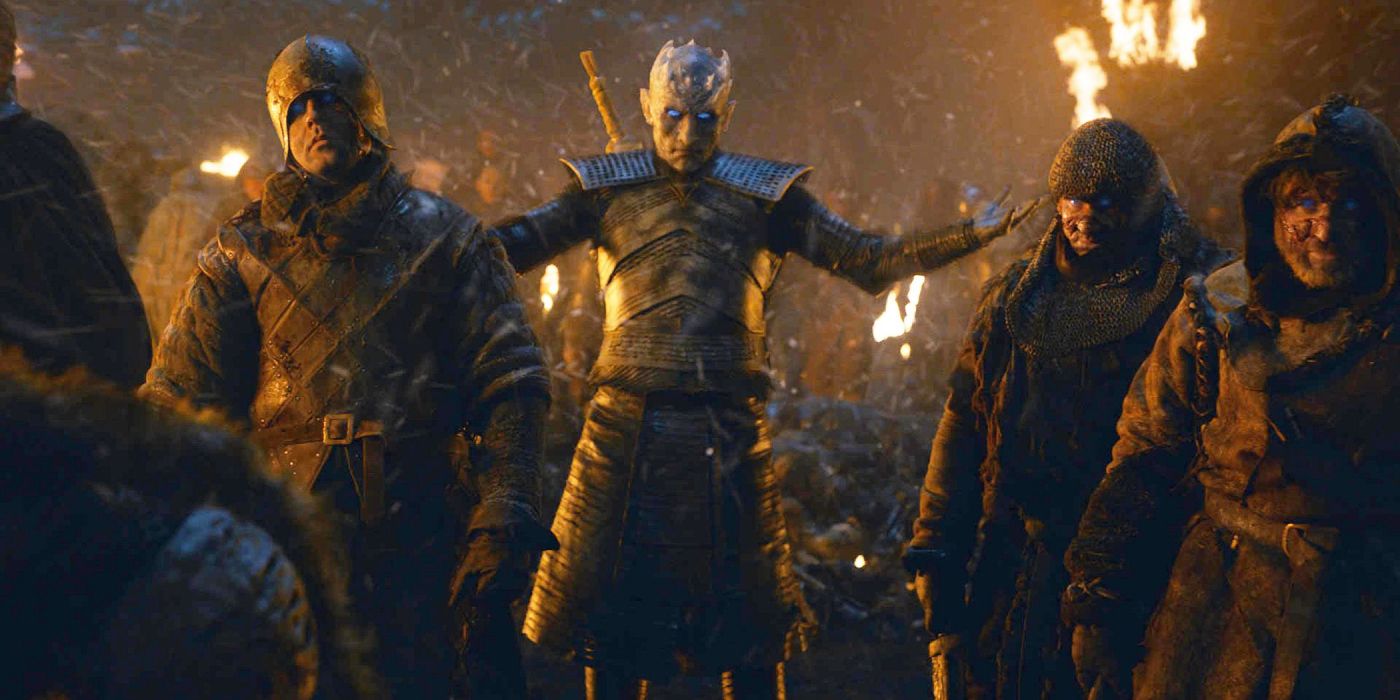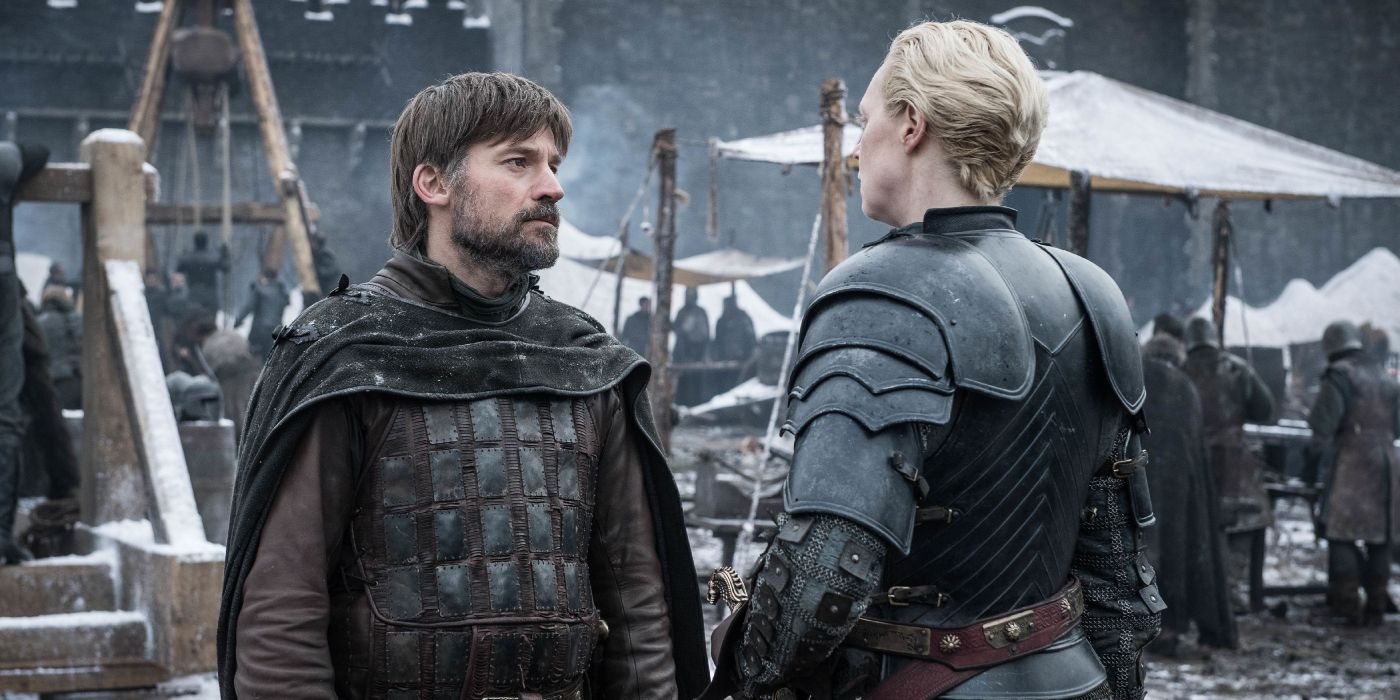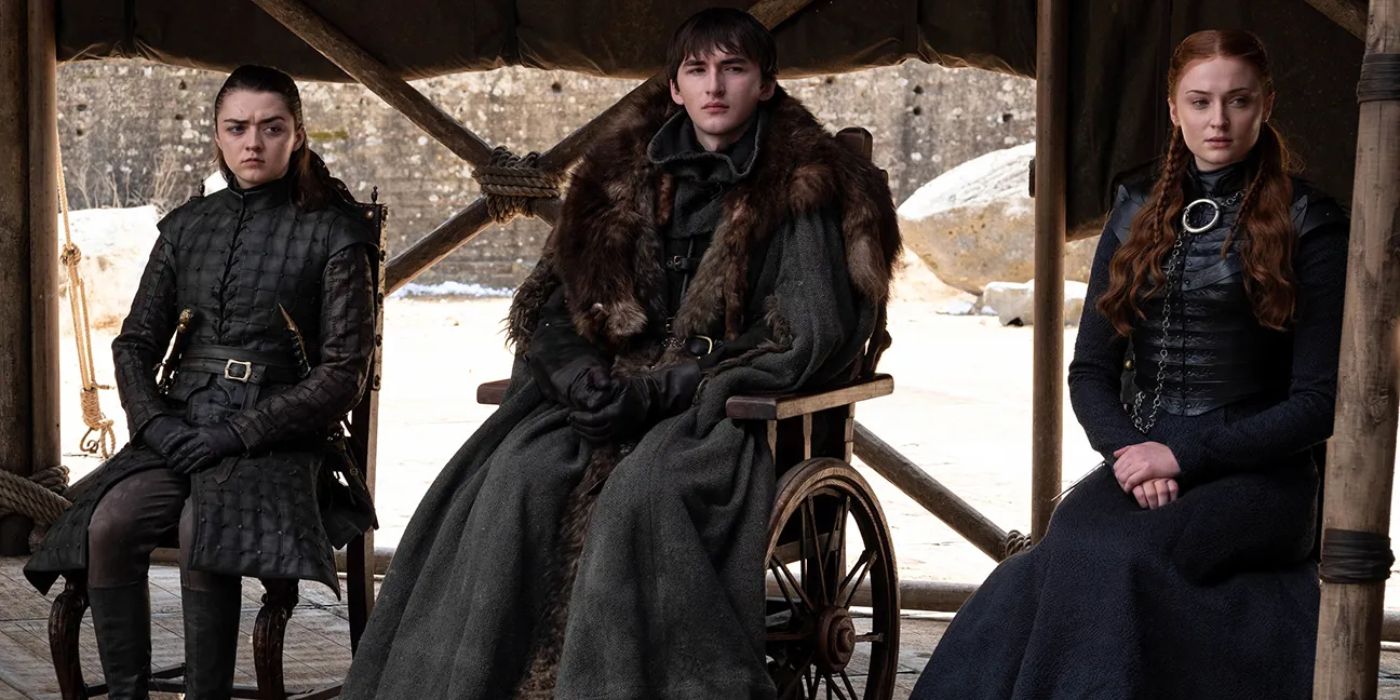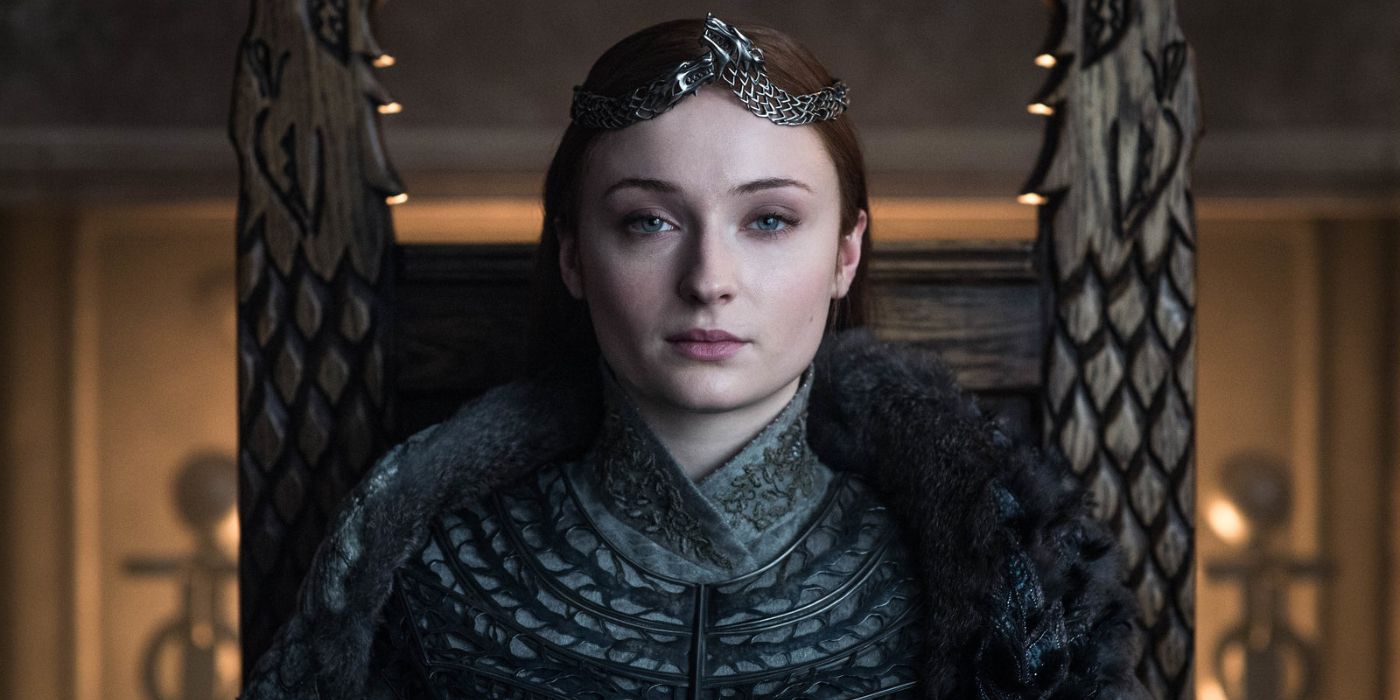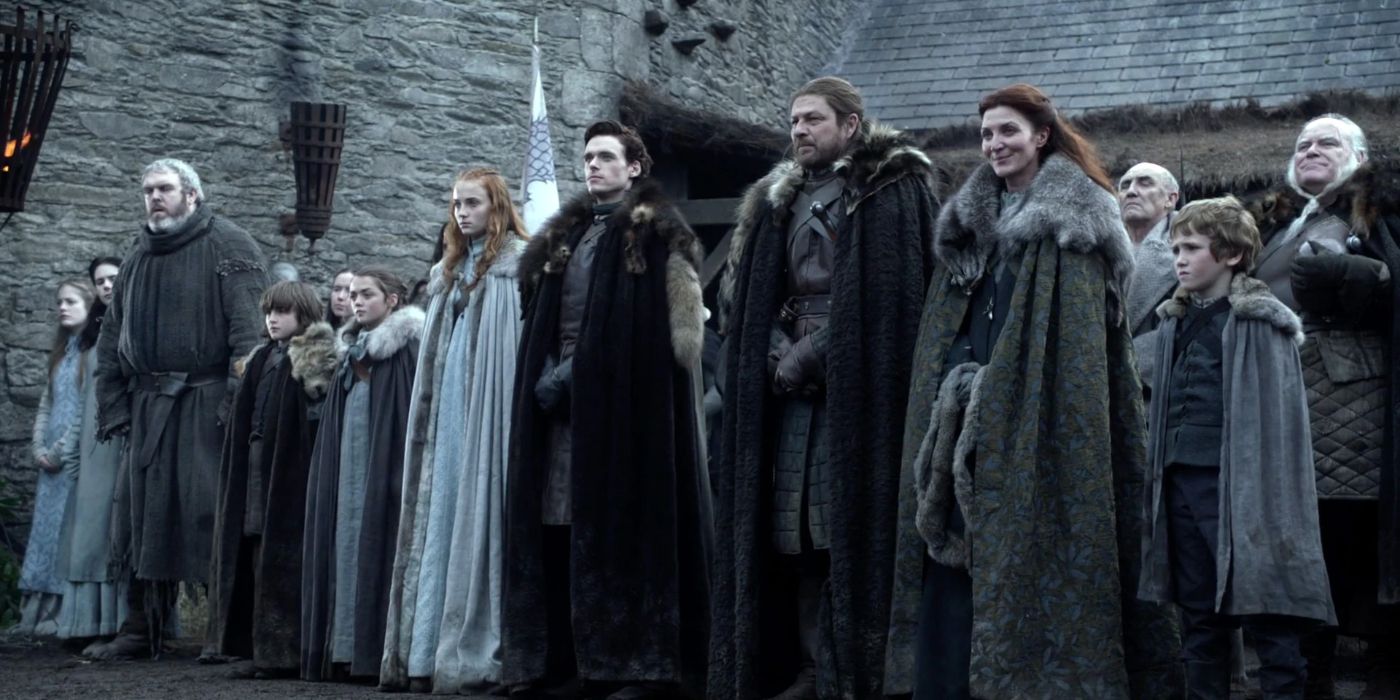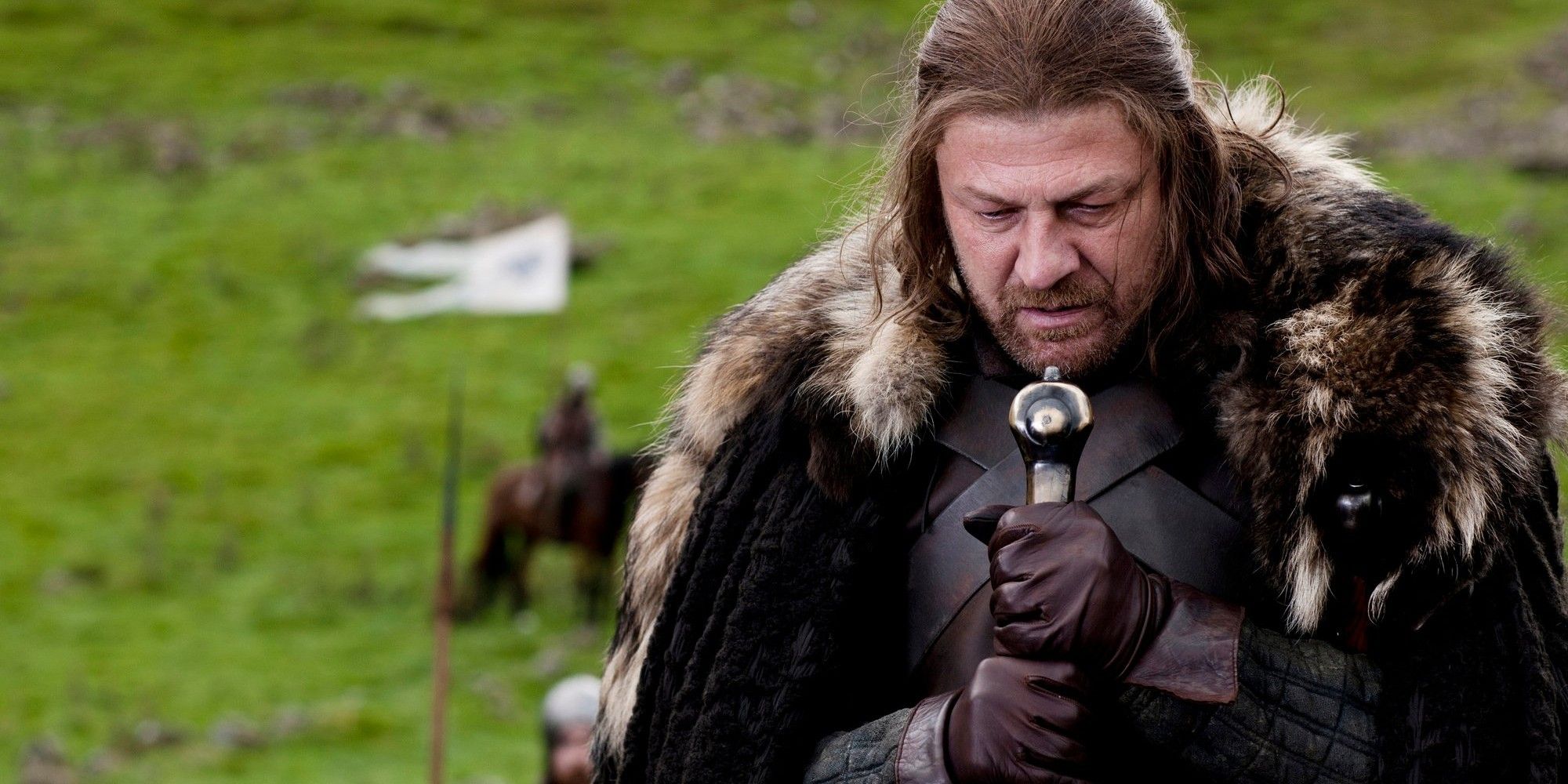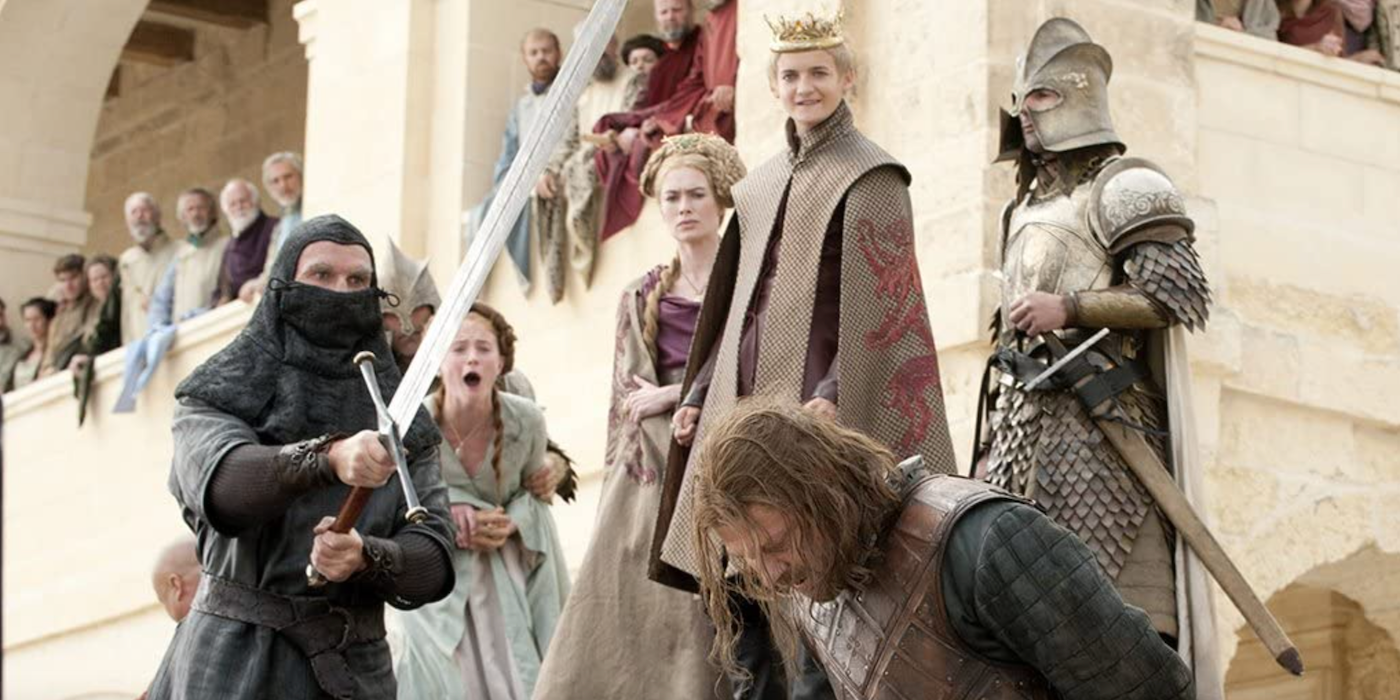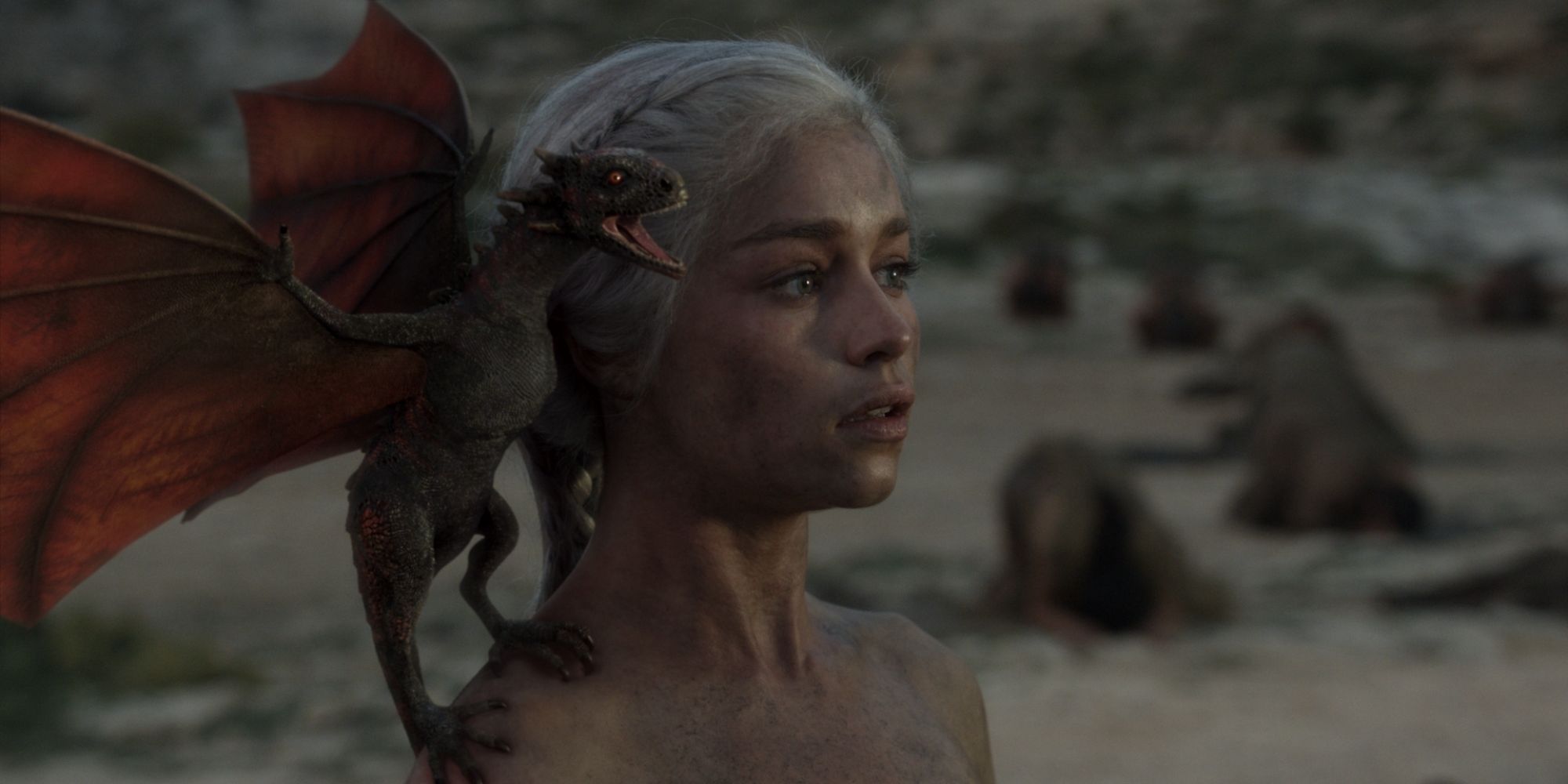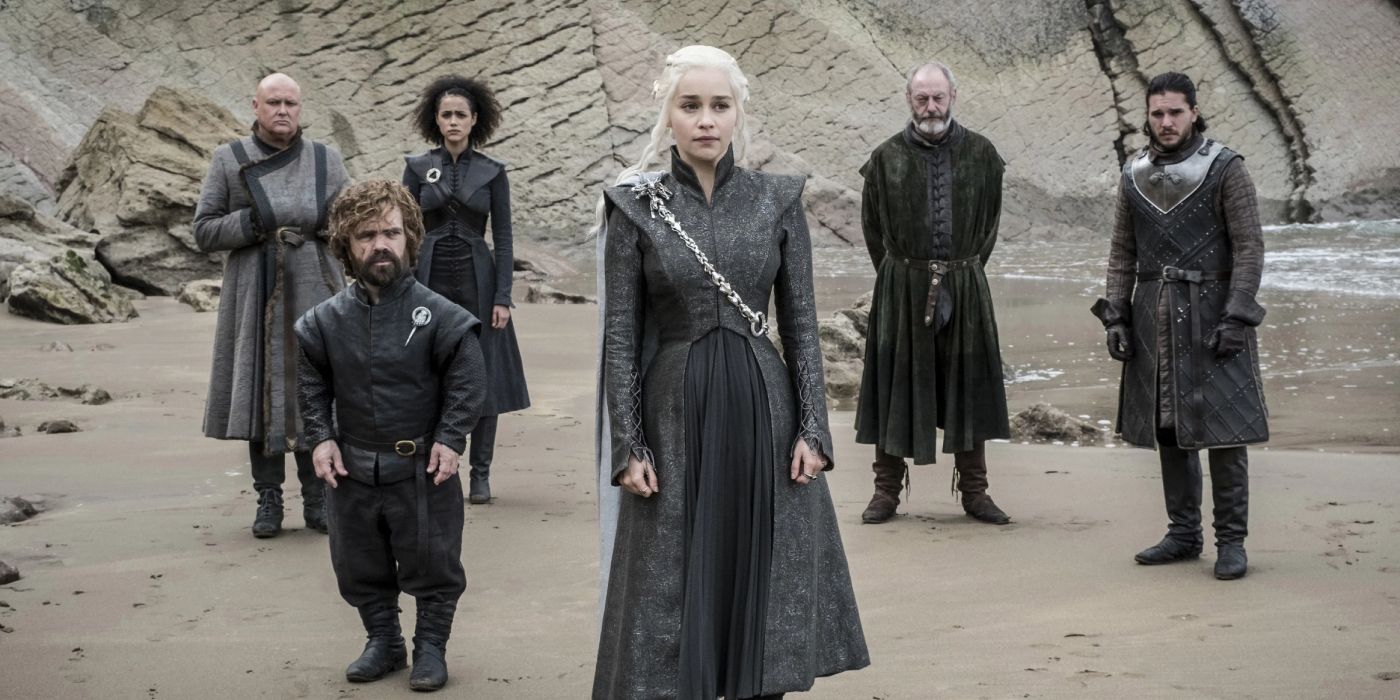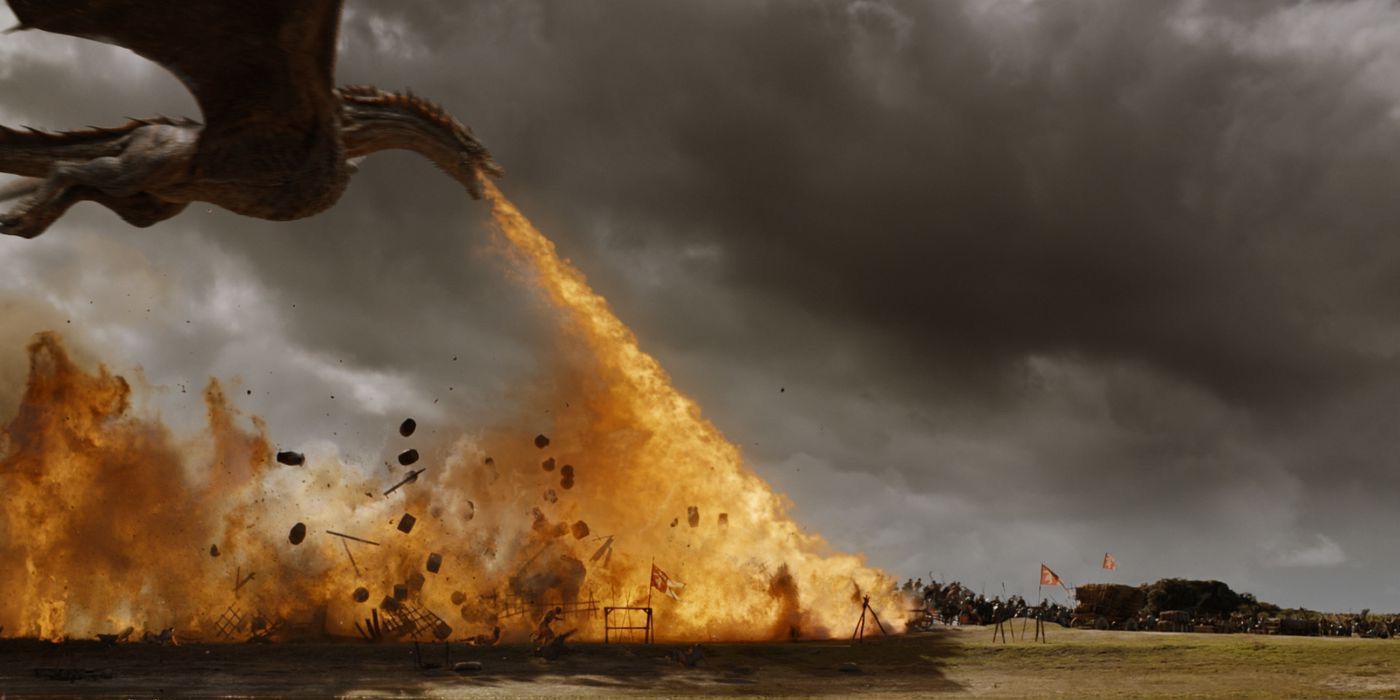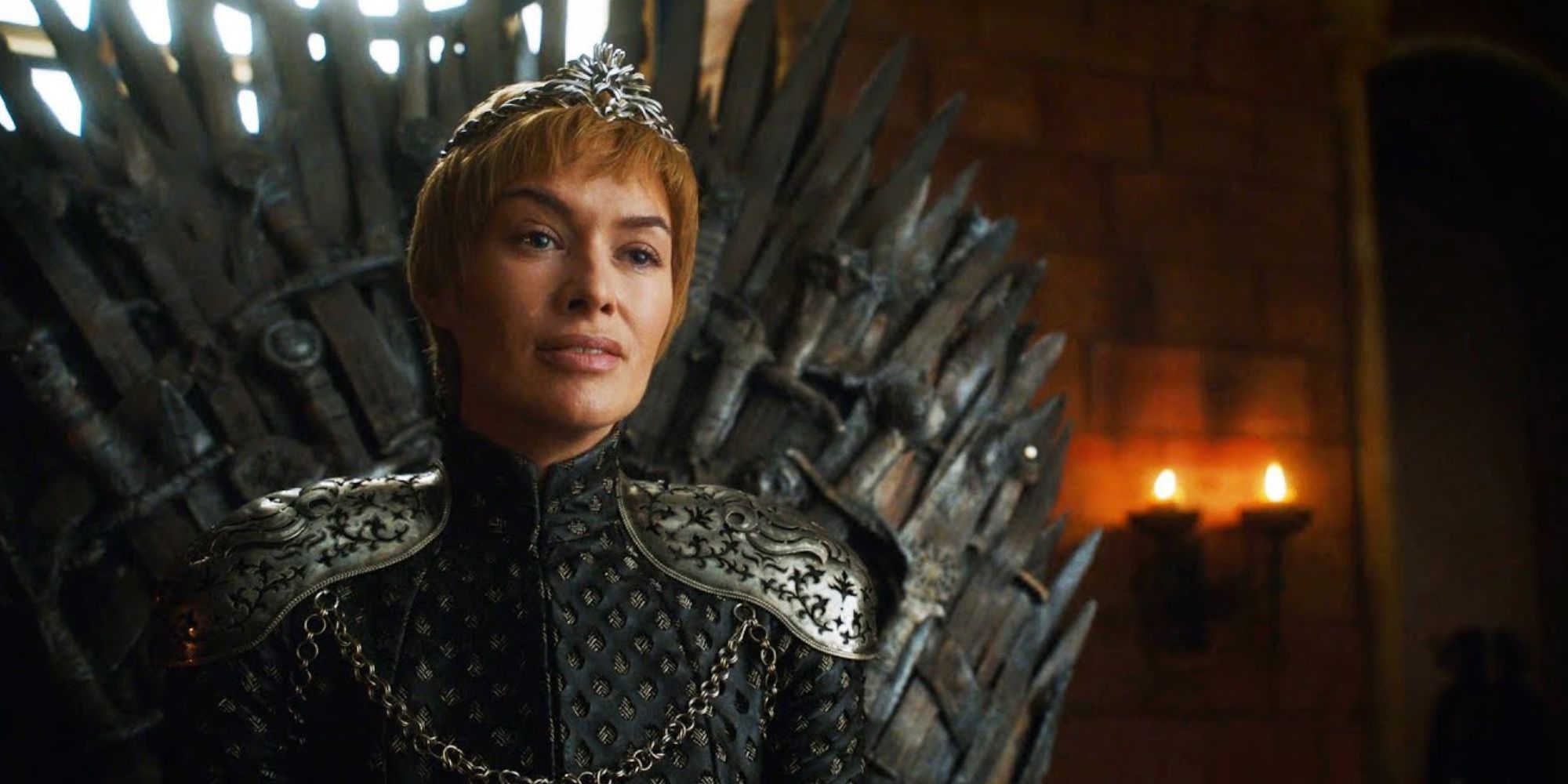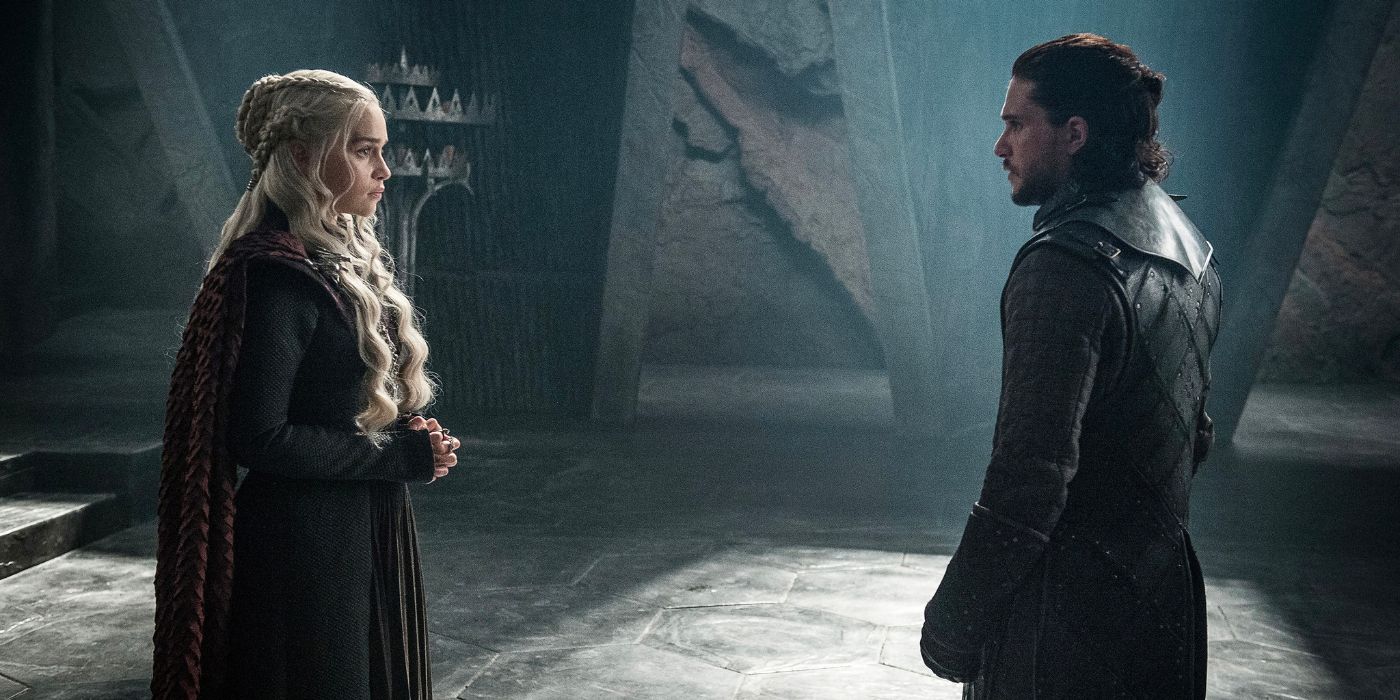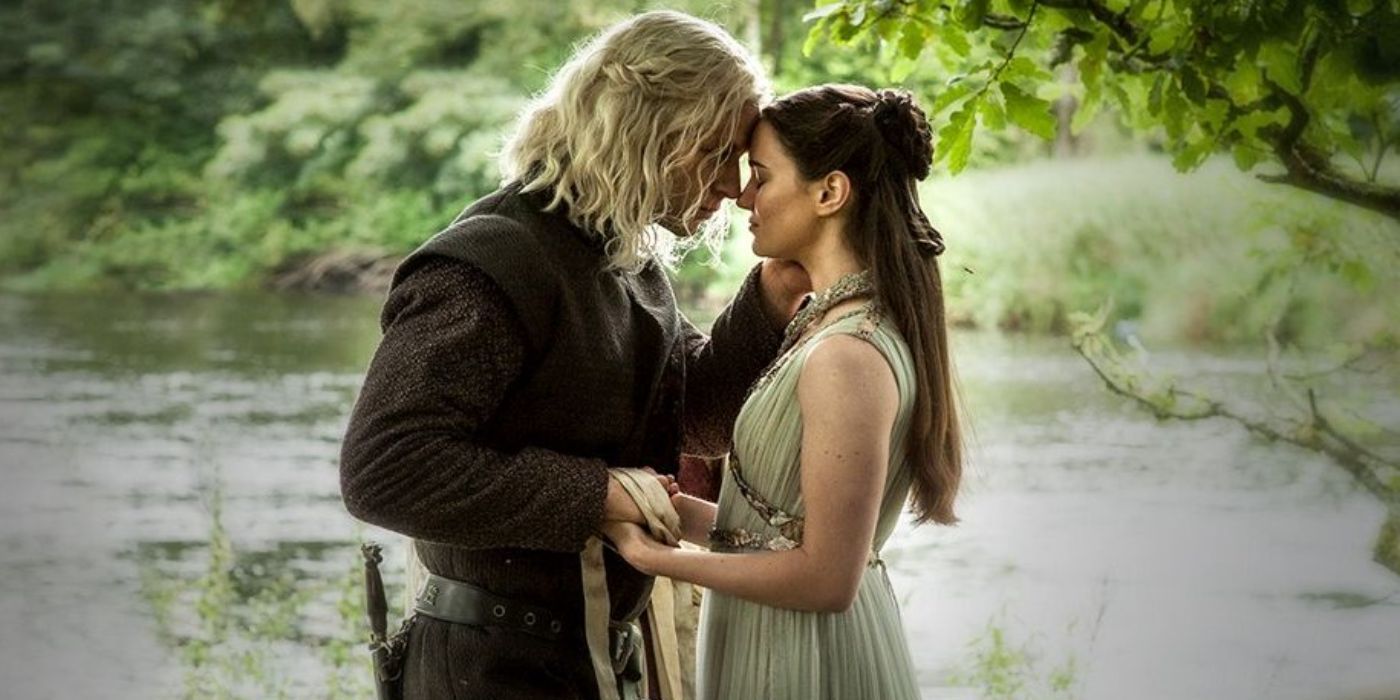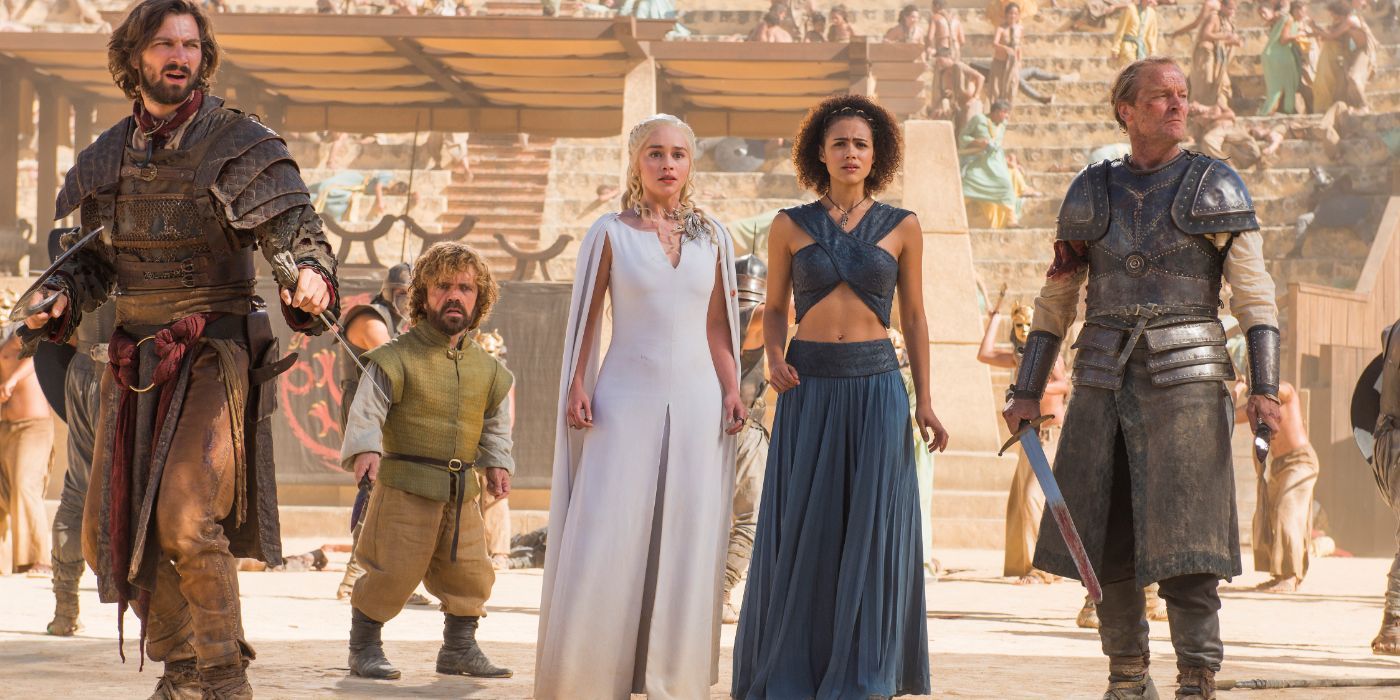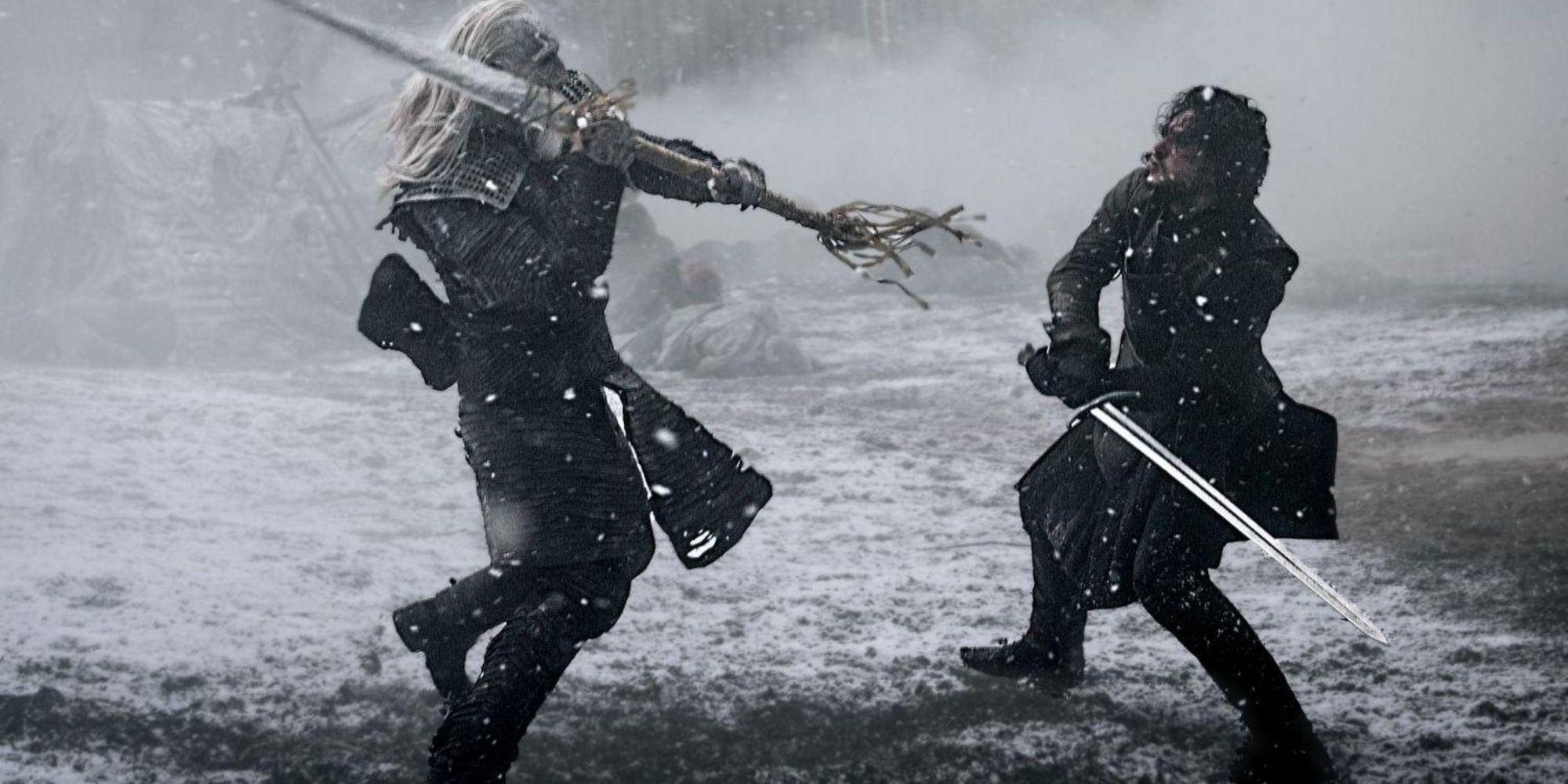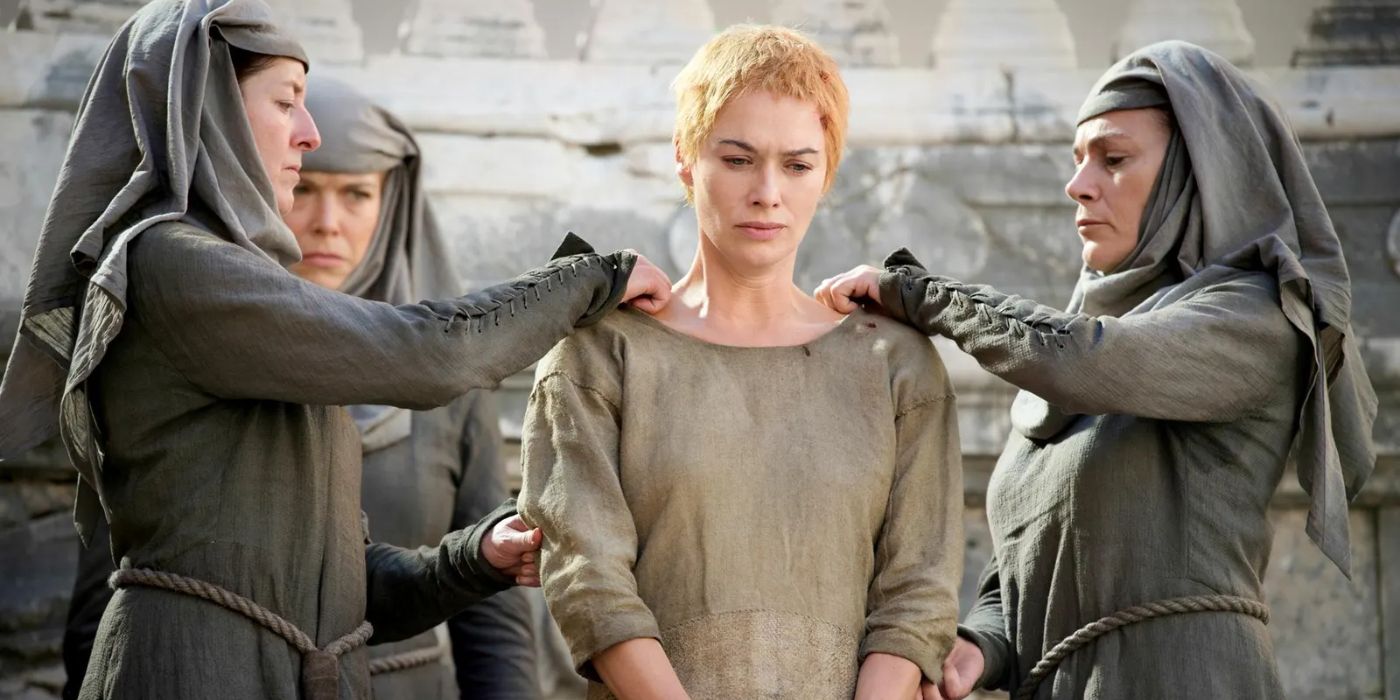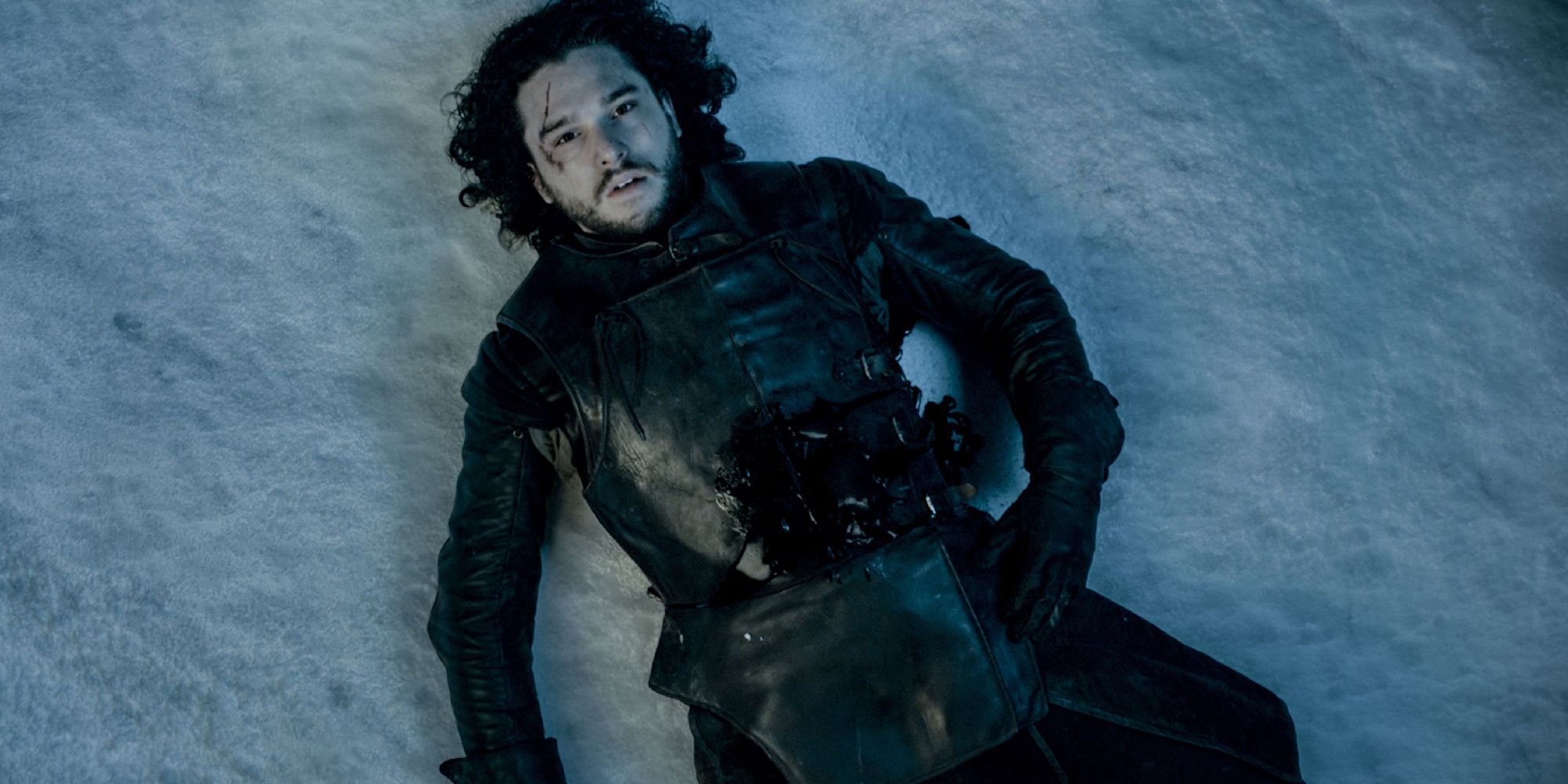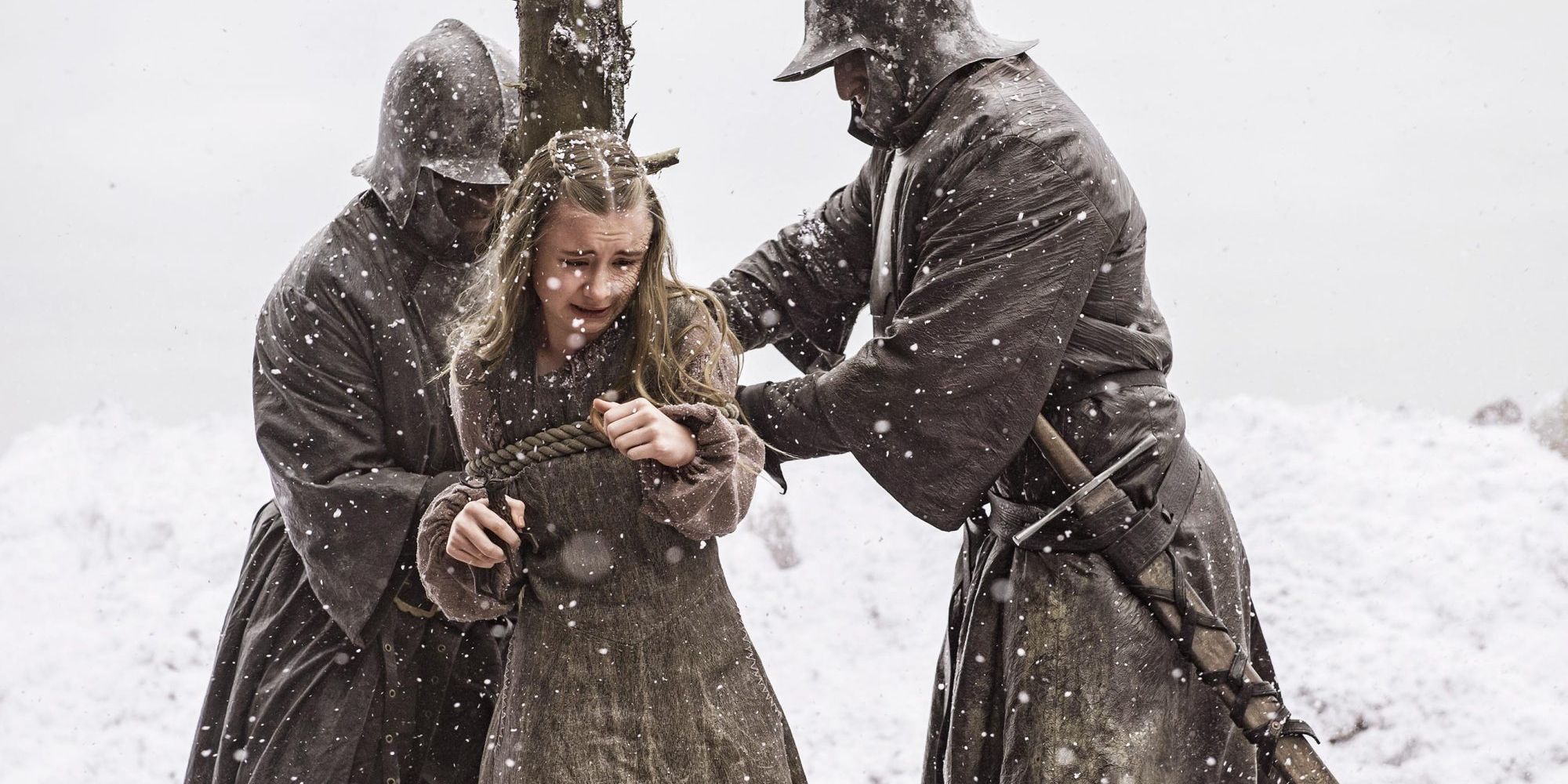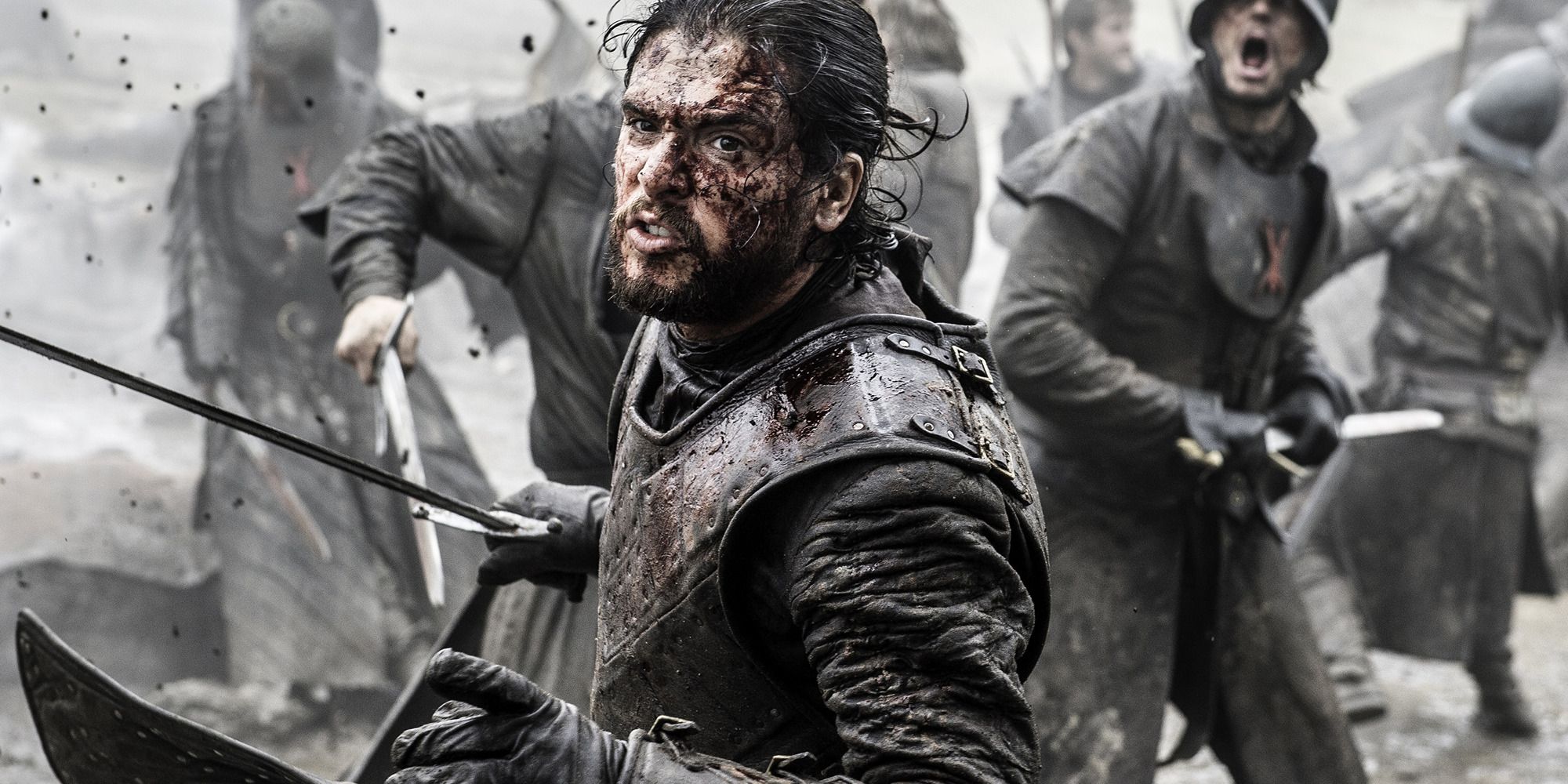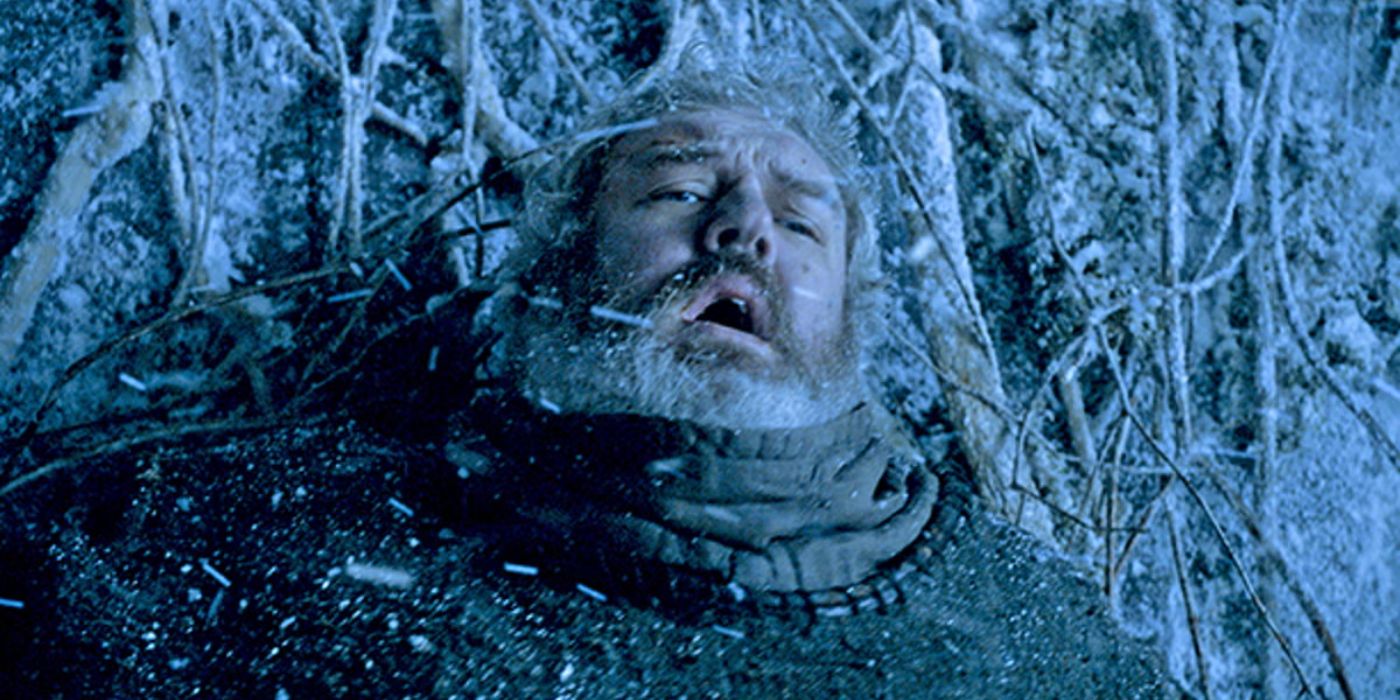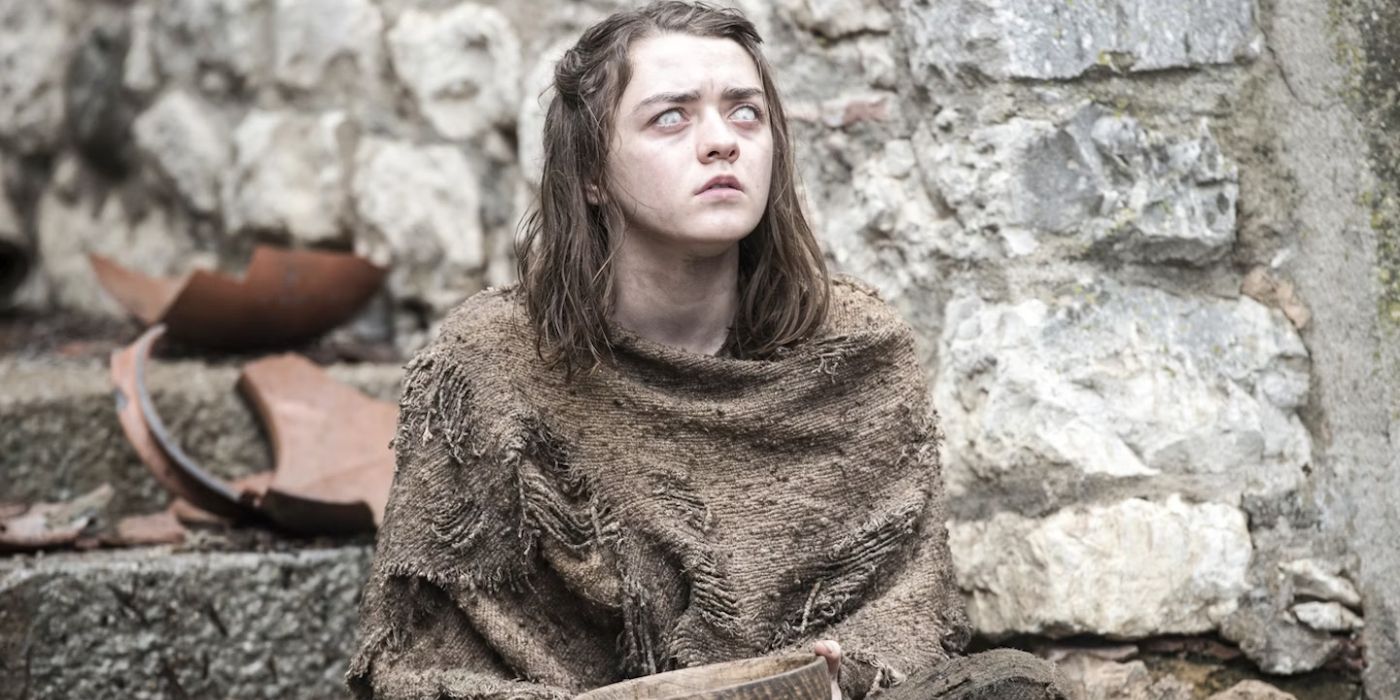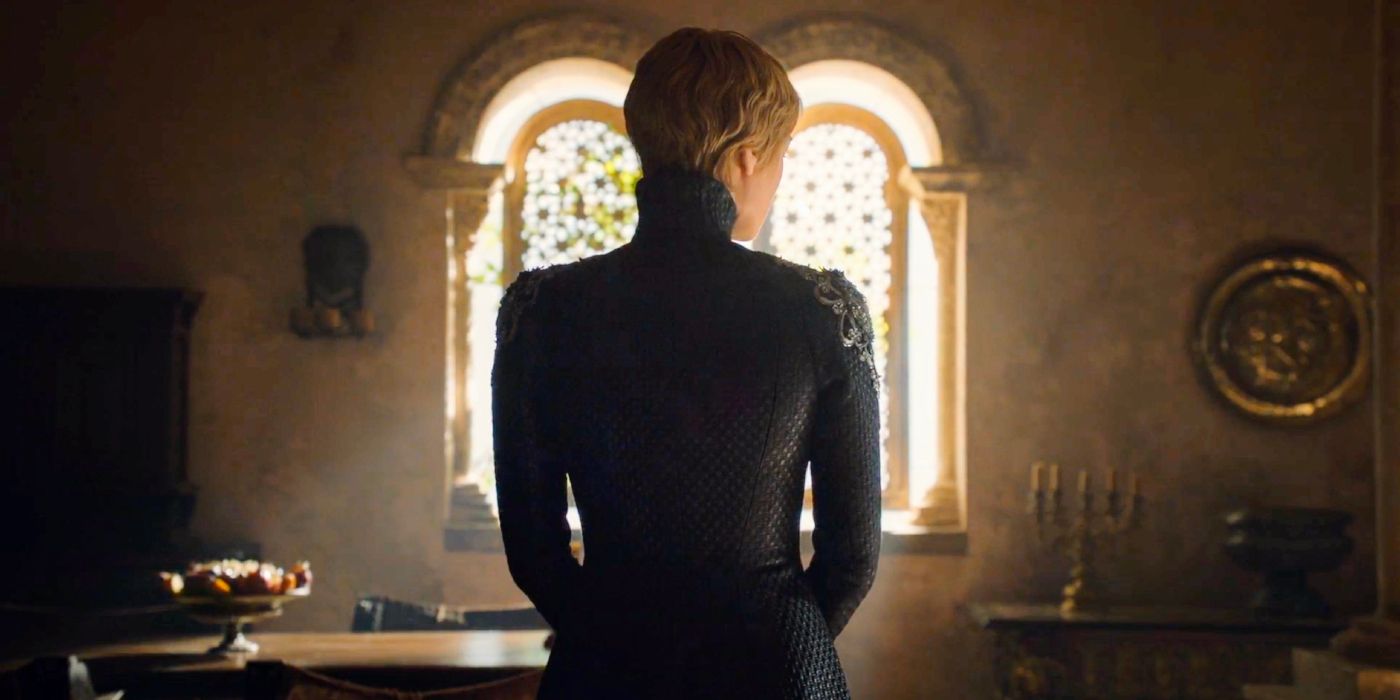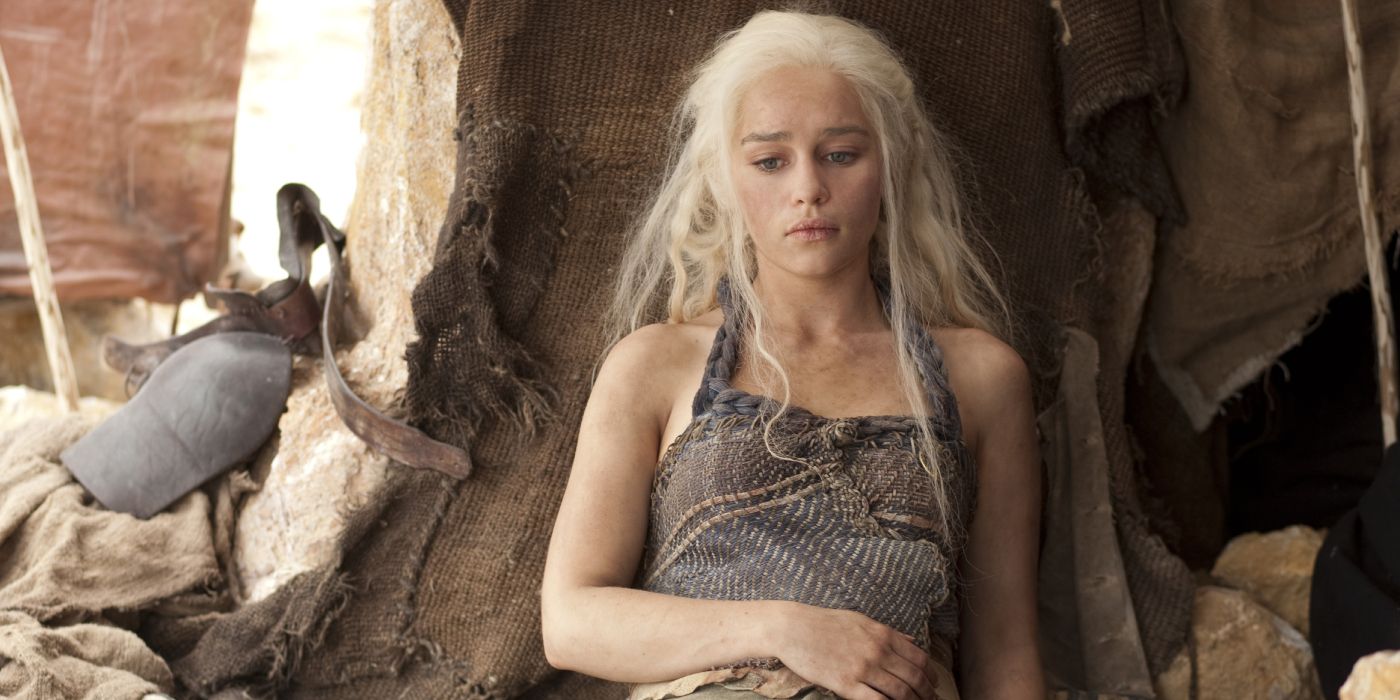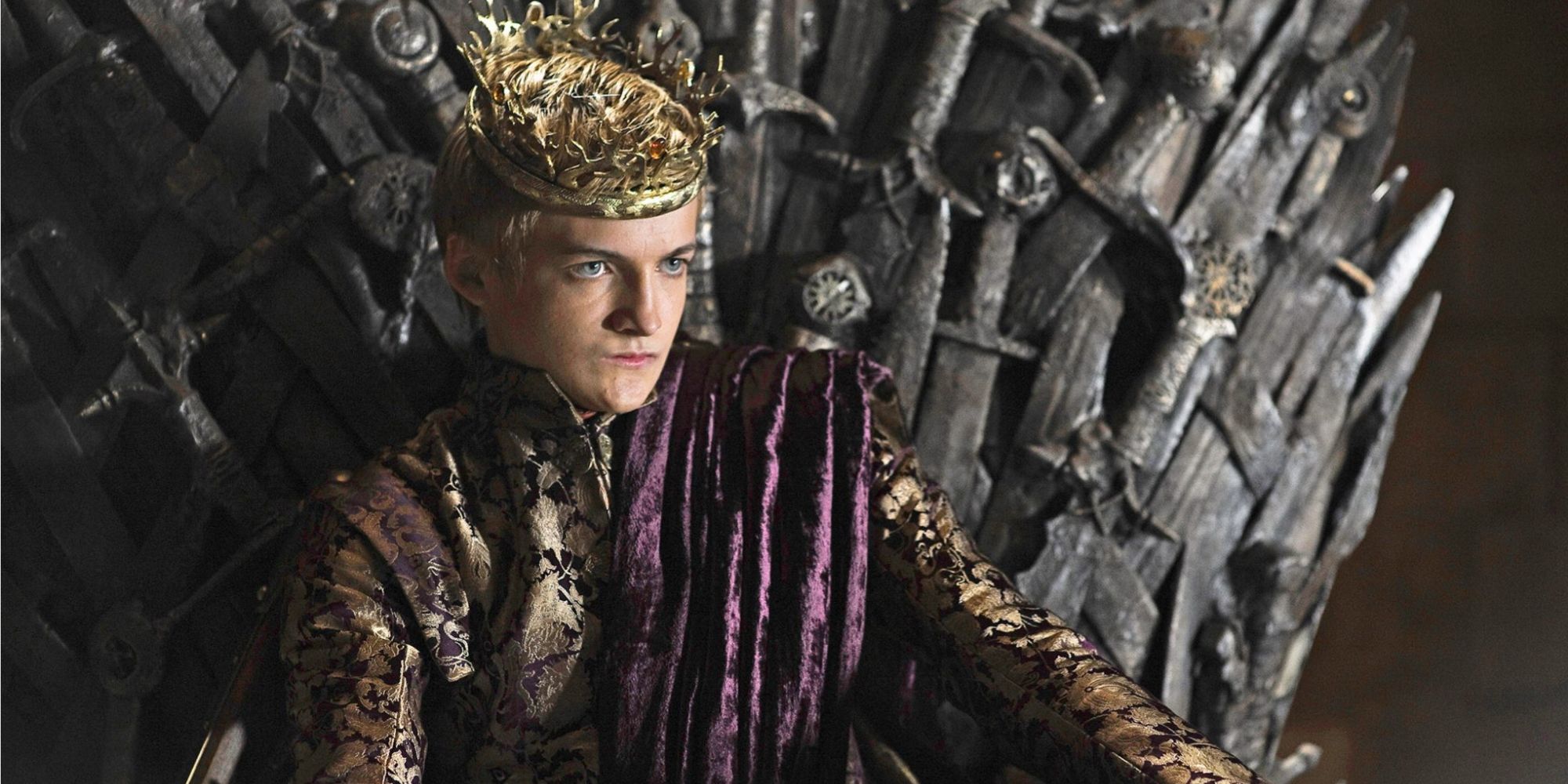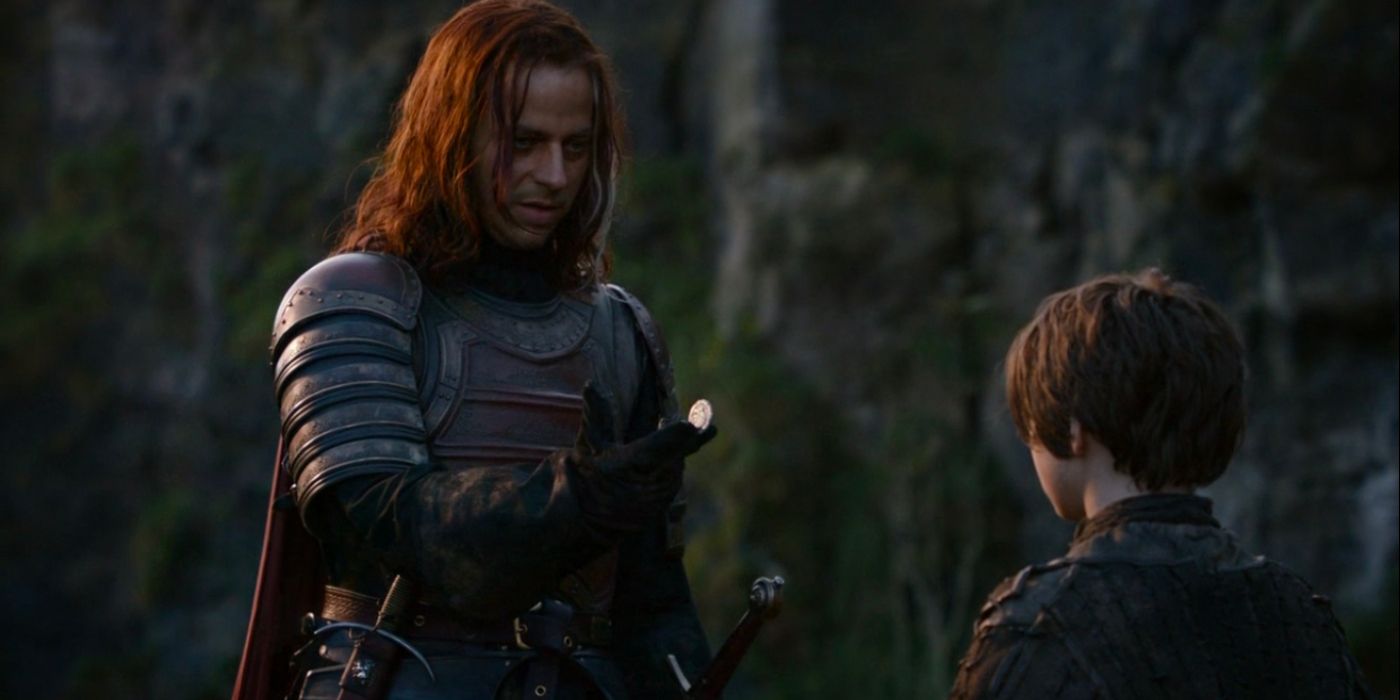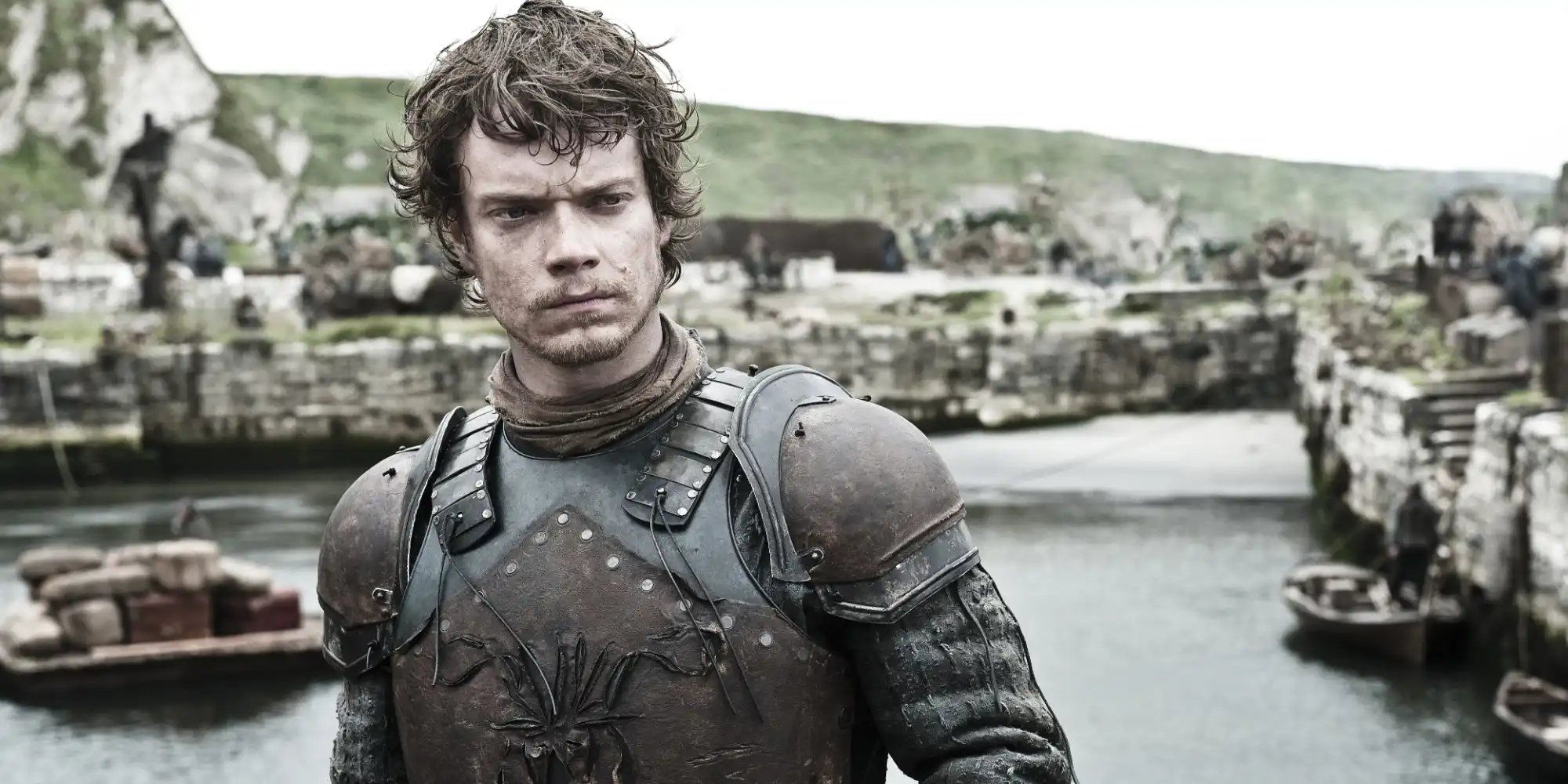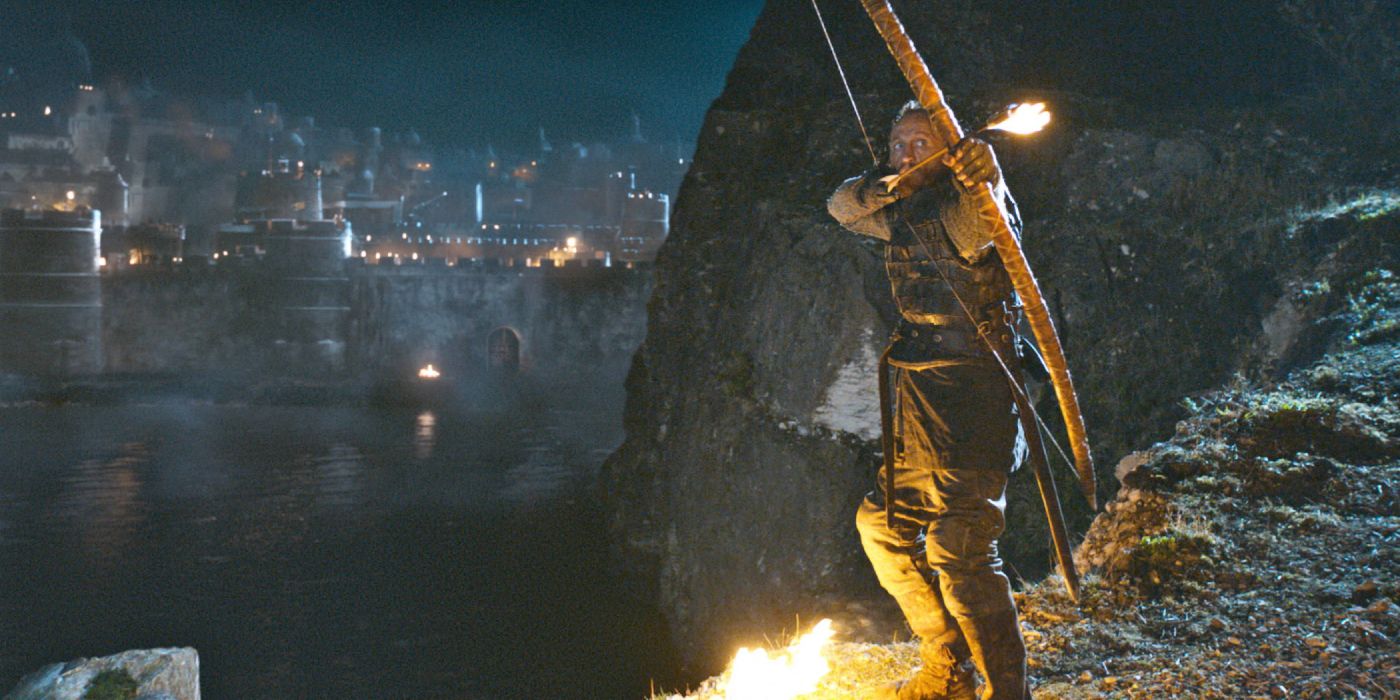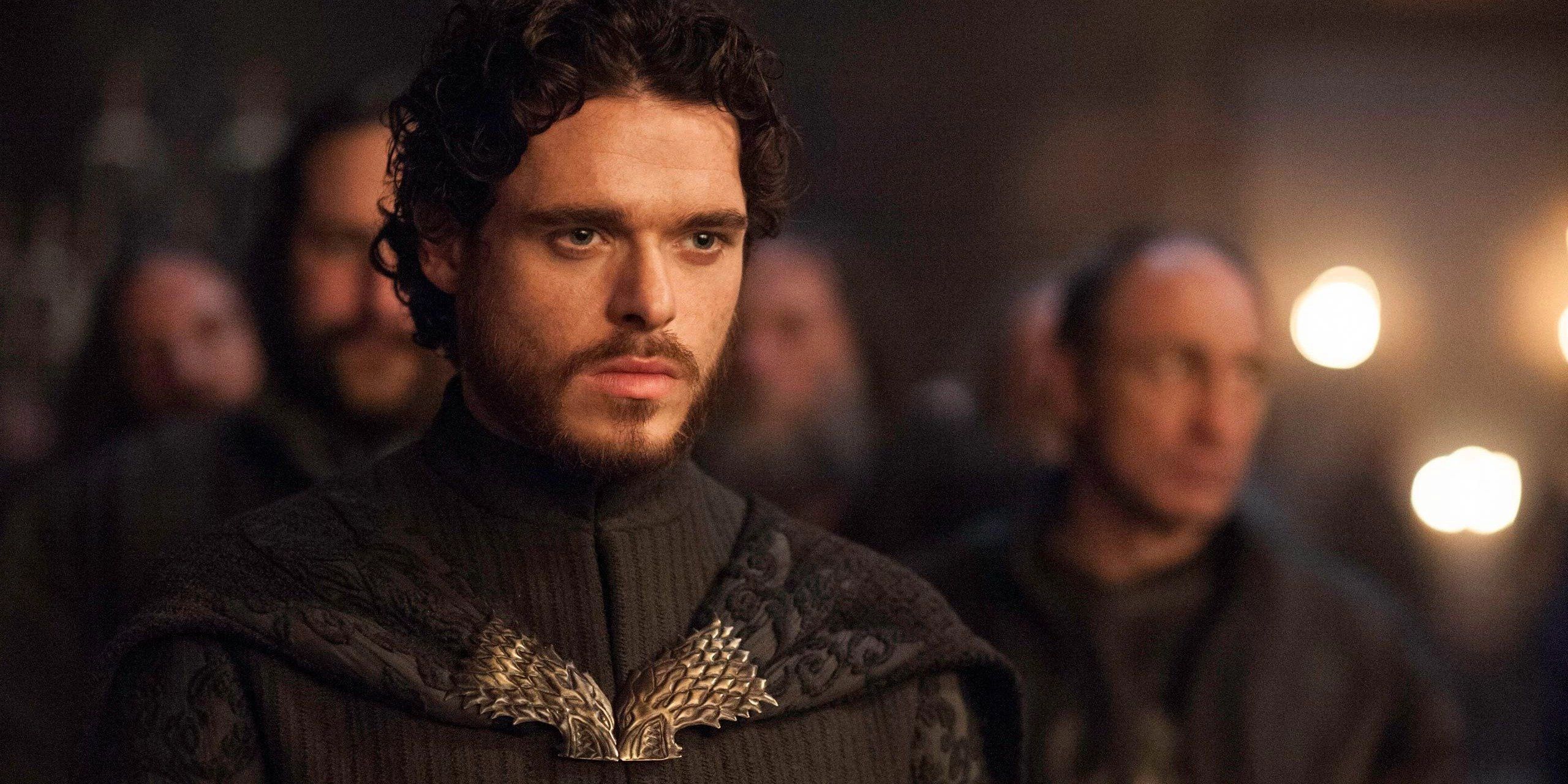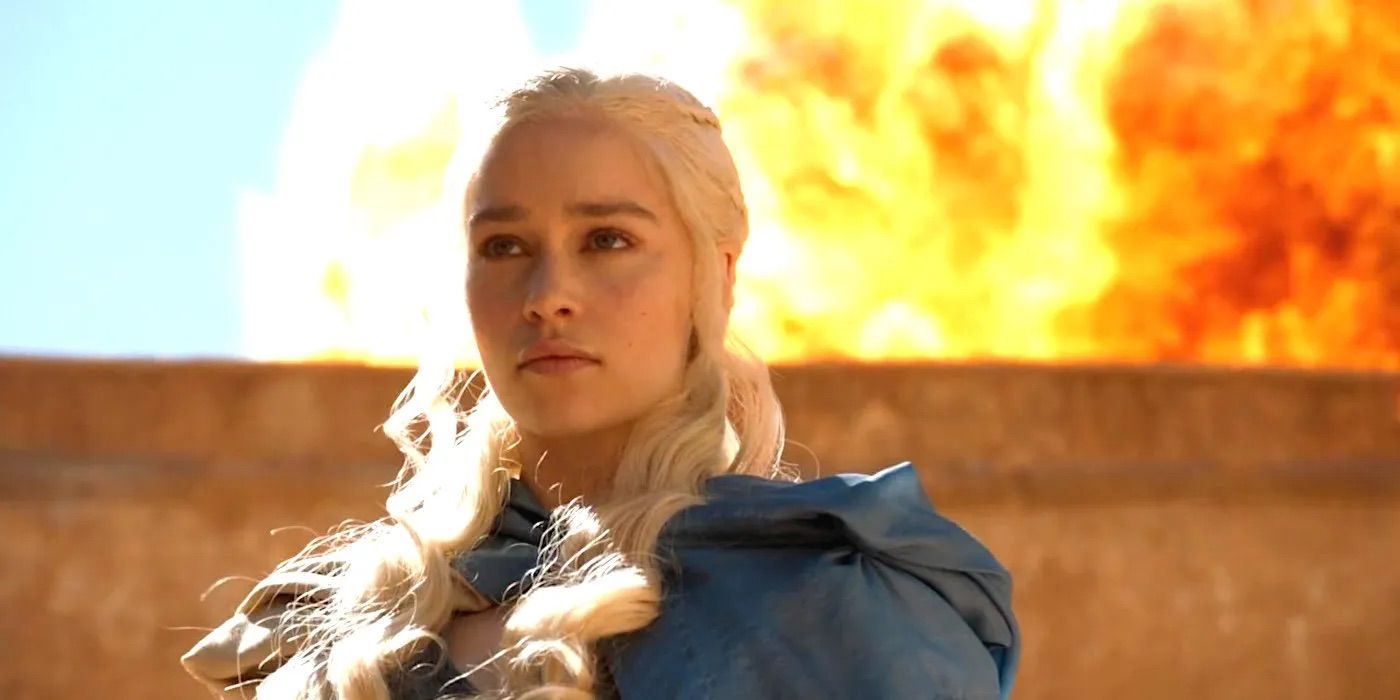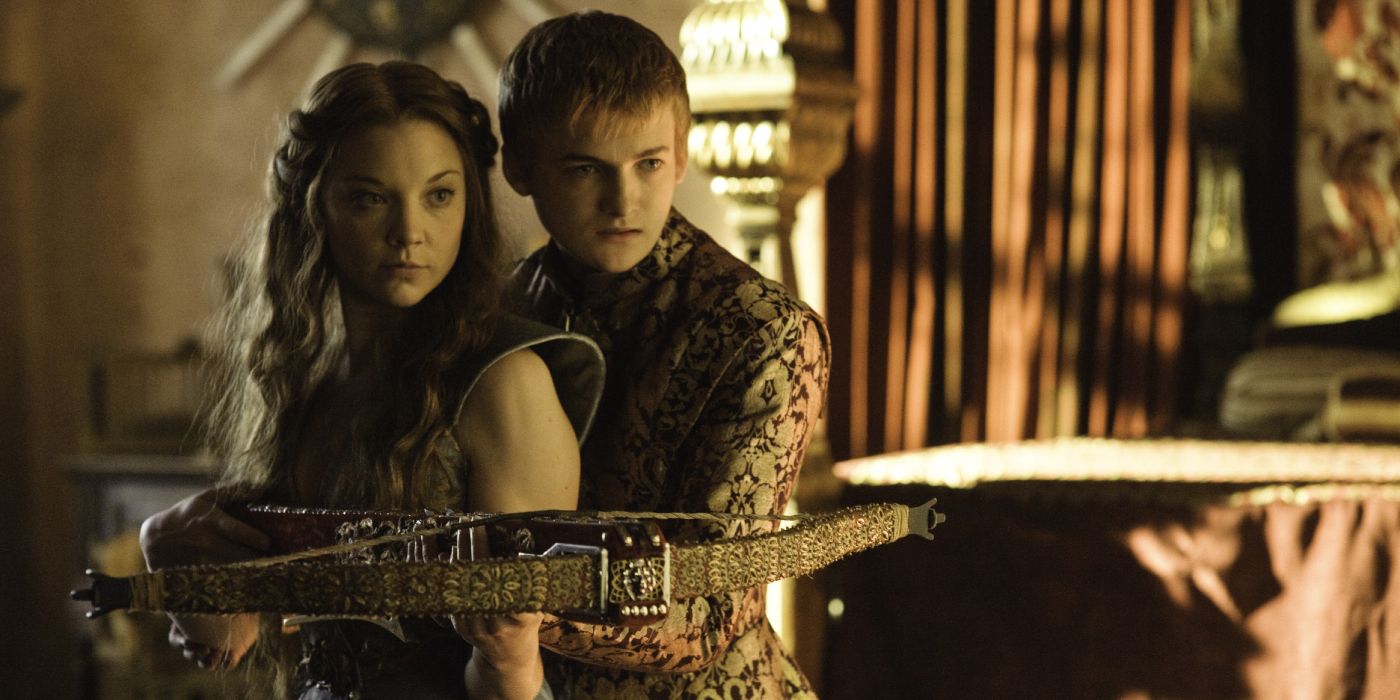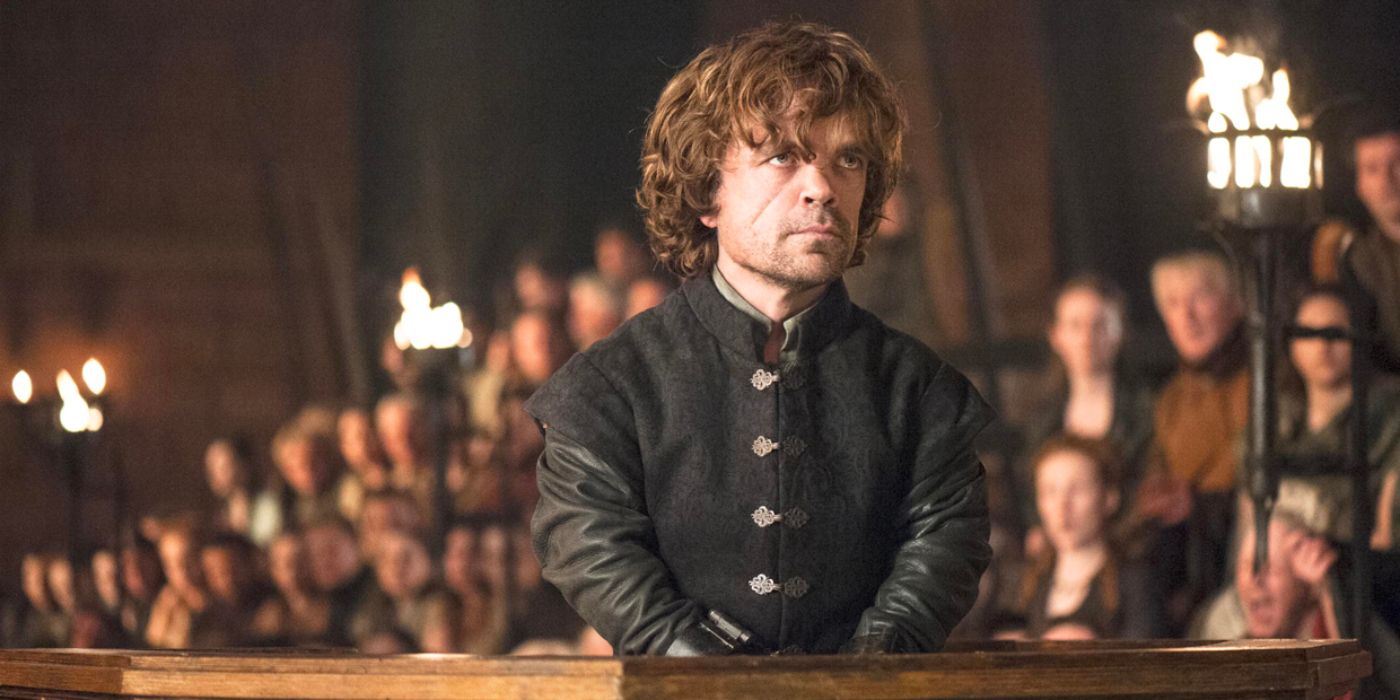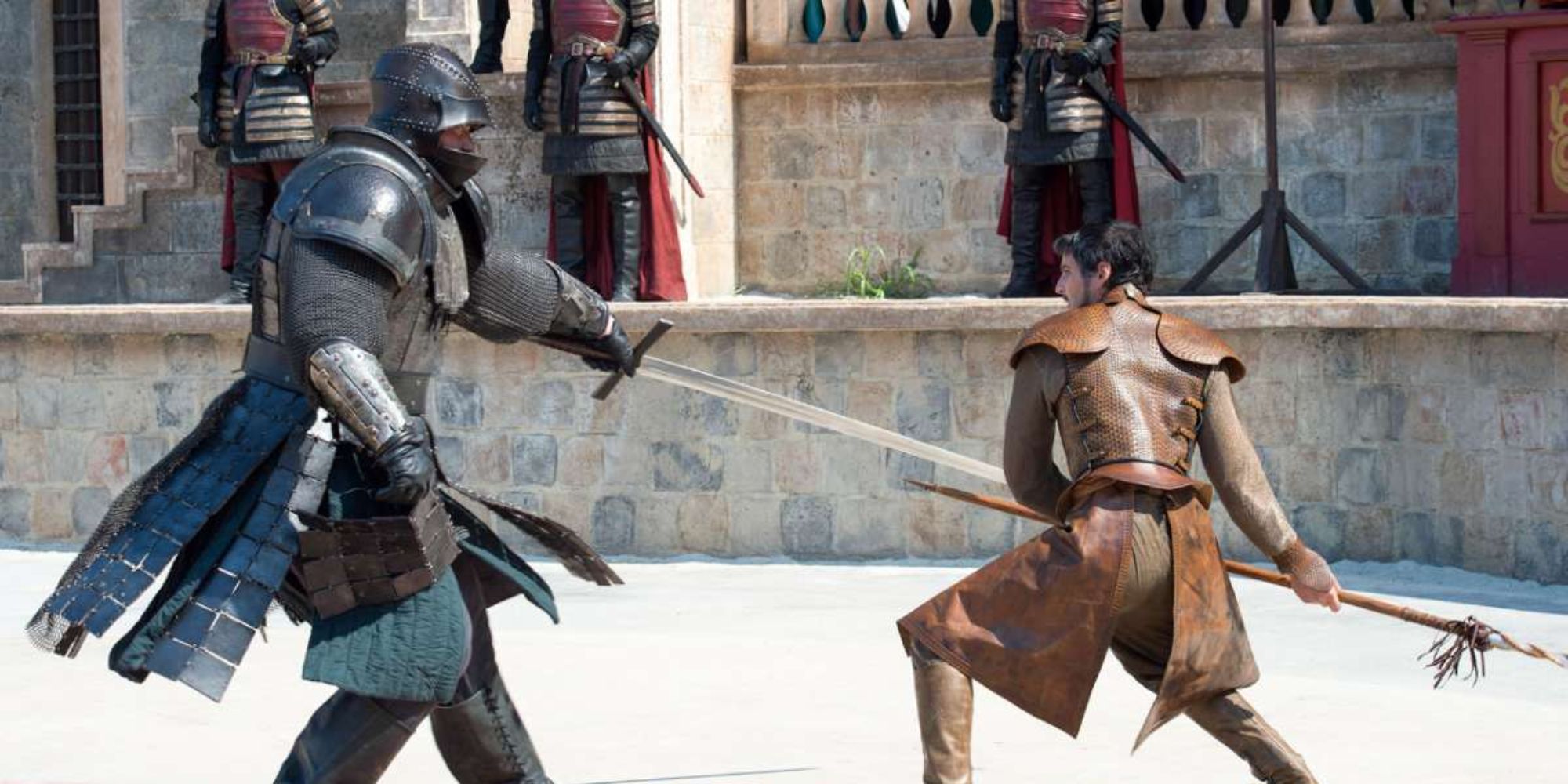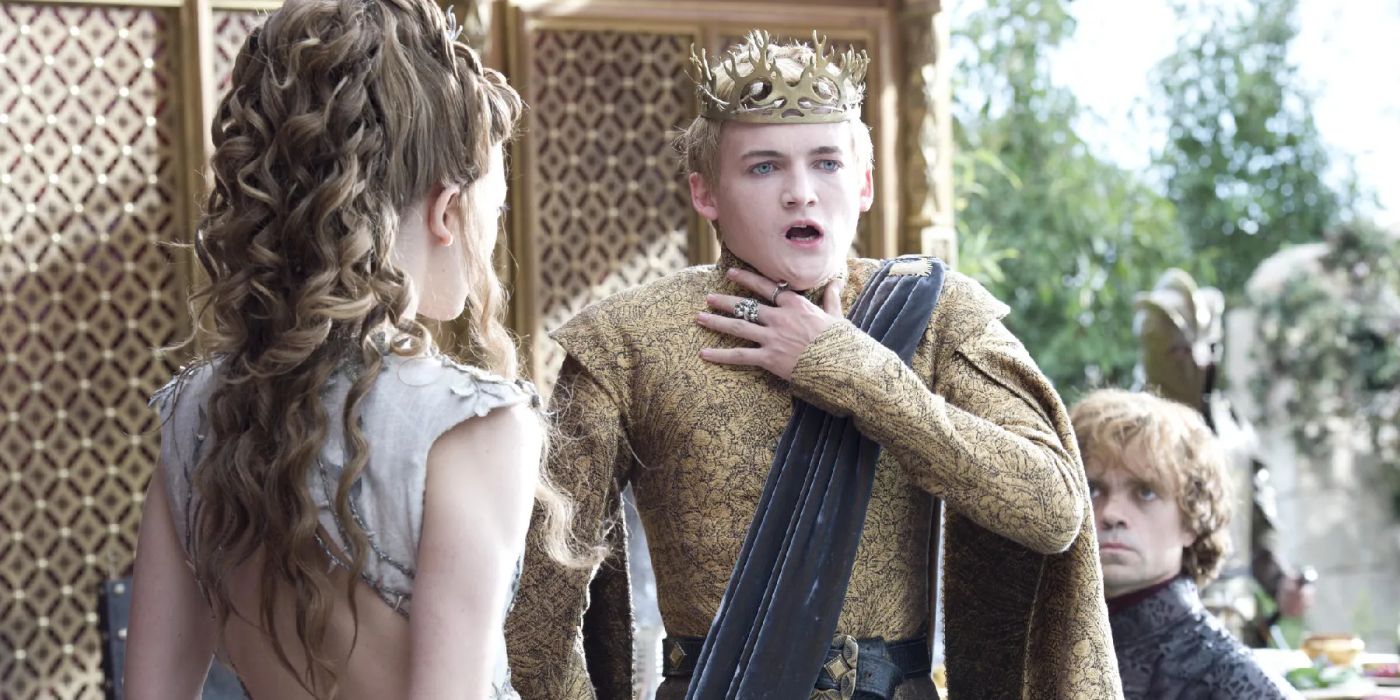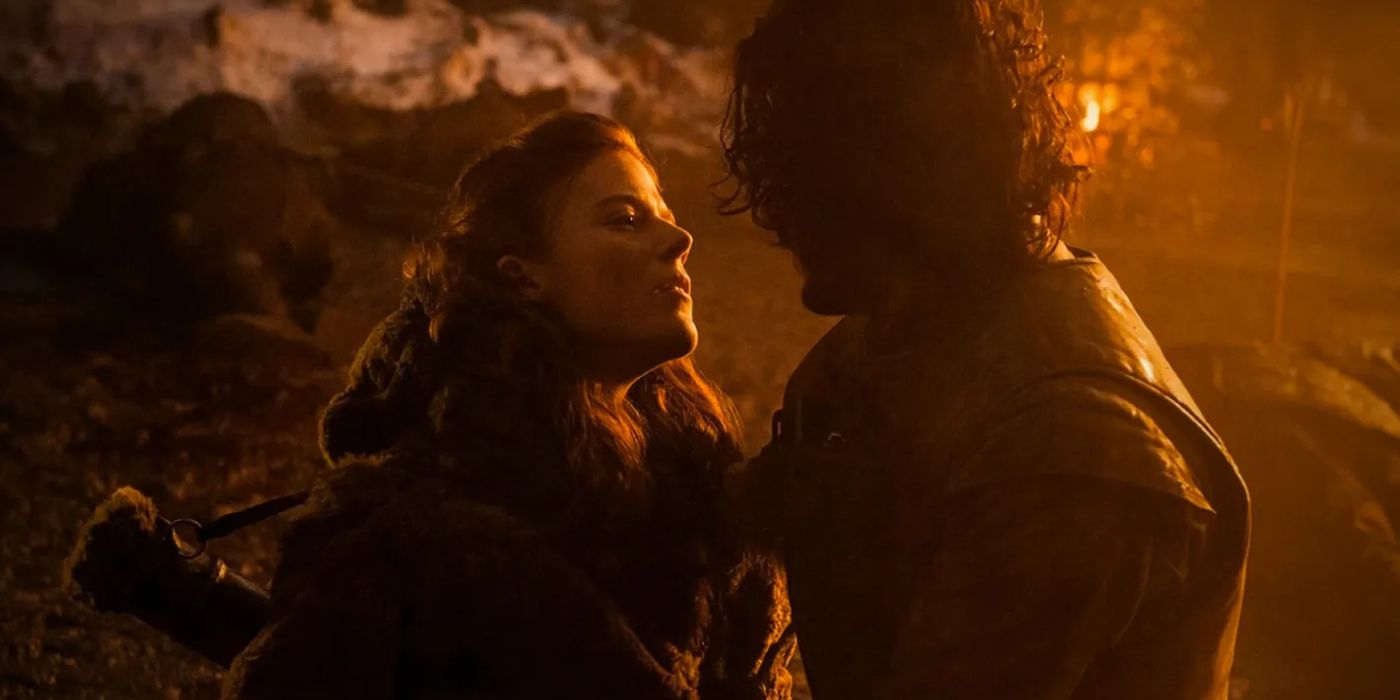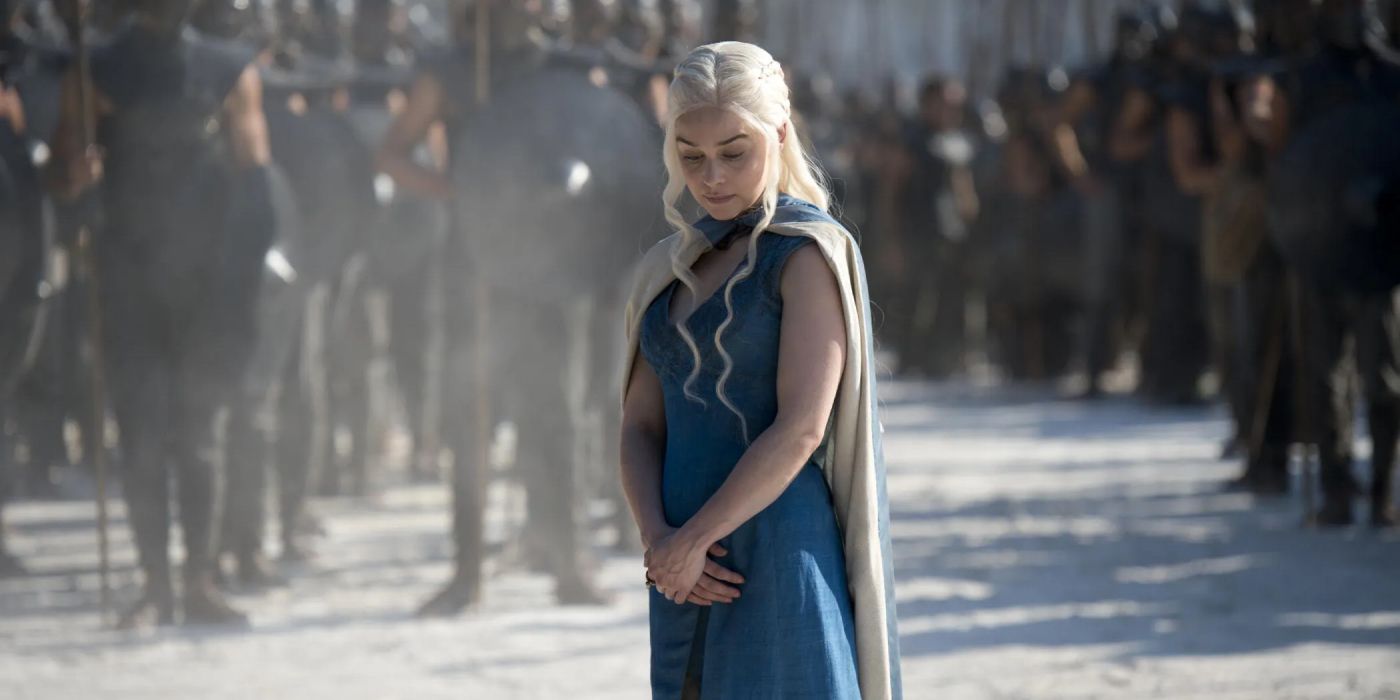
The ultimate television experience of the 2010s, Game of Thrones captivated hundreds of millions of viewers around the world with its dark fantasy setting, its ruthless and cunning characters, and its enthralling central dramatic question concerning who would end up on the Iron Throne. Its eight seasons were jam-packed with heart-stopping tension and majestic storytelling prowess, but some were stronger than others, a fact emphasized by Rotten Tomatoes’ evaluation of each season.
While many hold the view that Game of Thrones ended in underwhelming fashion, television audiences have been immediately entranced with the return to the magic and political turmoil of Westeros in HBO’s prequel series, House of the Dragon, which will return to the screen for Season 2 in the summer of 2024. Diving back into the magic and mayhem of Game of Thrones, critics’ views of how each season ranks presents an interesting perspective that many fans may have strong feelings about.
8.Season 8 (2019)
Rotten Tomatoes Score: 55%
As possibly the most anticipated season of any series in the history of television entertainment, Game of Thrones faced an impossible task to appease all of its fans with its eighth and final season. Beginning in the North, it initially tracks the efforts of the united armies of mankind to stand against the White Walkers descending upon Westeros from beyond the Wall. Once the ancient evil is defeated, all attention soon turns back to the Iron Throne and the looming war between Queen Cersei (Lena Headey) and Daenerys Targaryen (Emilia Clarke).
The season squanders many of its most notable moments, with the Battle of Winterfell undone by a dim visual presentation, while Daenerys’ villainous turn during her attack on King’s Landing isn’t broadcast well enough to be a meaningful or well-earned twist. Furthermore, many of the series’ most beloved characters receive underwhelming ends to their arcs. While Season 8’s ambition deserves more credit than it gets, and it does feature some excellent moments, there is no denying that where GoT concluded was unrewarding. The 55% score on the Tomatometer is by far the worst rating of any season in the series, but its middling critical reception is reflective of how many fans viewed the final season.
7.Season 1 (2011)
Rotten Tomatoes Score: 90%
While many television series use their first seasons to establish tone and basic plot points while gauging what ideas audiences embrace and reject, Game of Thrones hit the ground running, as evinced by its impressive 90% score on the Tomatometer. The bulk of the debut season follows Eddard Stark (Sean Bean) as he treks to King Landing to help his long-time friend King Baratheon (Mark Addy) by serving as the Hand of the King. While political schemes transpire in the background and powerful figures plot against House Stark, Daenerys Targaryen, a young heir of a past ruler, begins her ascent to power in the eastern land of Essos.
Sprawling and epic in its scope, the first season captivated millions of viewers from its very first episode, tying them to the Starks as the unforgiving world of Westeros was gradually explored and established. Touching on many fantasy tropes while delivering exhilarating drama that struck a perfect balance between all of Game of Thrones‘ major characters, Season 1 was a monumental achievement in world building. Ned Stark’s execution in the penultimate episode, “Baelor,” remains one of the most iconic moments television has ever seen, one that launched the all-out war that the rest of the series would focus on.
6.Season 7 (2017)
Rotten Tomatoes Score: 93%
Game of Thrones‘ penultimate season features many components of the series operating at its grandiose, awe-inspiring best, but it also hints at some of the rushed and ill-conceived beats that would mar the series in its final outing. Daenerys crosses the Narrow Sea with her forces to begin her conquest of Westeros, making allies with many of the houses while forming an intimate bond with Jon Snow (Kit Harrington) whose work to unite Westeros against the White Walkers grows urgent. All the while, other surviving members of House Stark converge on Winterfell and the Lannisters gather their own strength to stand against Daenerys.
At its most brilliant, Season 7 depicts action in Game of Thrones with urgency and suspense that was close to the series’ peak if not eclipsing it. Daenerys and the Dothraki’s attack on the Lannister army in “The Spoils of War” and the Night King (Vladimir Furdik) reviving Viserion both stand as fine examples of this. However, Season 7, which had just seven episodes as opposed to every prior season’s 10, also features a couple of minor though eyebrow-raising moments (like the infamous GoT episode that marked its decline). Ultimately, though, the good far outweighed the bad and the incredible Tomatometer score of 93% was well-earned as Season 7 resolved some lingering questions while setting the stage for the final season quite perfectly.
5.Season 5 (2015)
Rotten Tomatoes Score: 93%
An interesting rating in the eyes of Rotten Tomatoes, Season 5 of Game of Thrones is usually regarded as being one of the weakest, but the Tomatometer places it more in the middle of the pack with its impressive 93% rating from 574 reviews. The season sees Jon Snow become the new Lord Commander of the Night’s Watch while King Tommen (Dean-Charles Chapman) faces a new threat in the form of the religious leader, the High Sparrow. Tyrion (Peter Dinklage), having killed his father and escaped custody, flees to Essos to serve under Daenerys Targaryen, Stannis Baratheon (Stephen Dillane) mounts his conquest for the Iron Throne, and Arya (Maisie Williams) trains as an assassin in Braavos.
After the first four seasons adhered to George R. R. Martin‘s novels with extreme dedication, Season 5 is ever-so-slightly freer with its adaptation, something that actually works in its favor as it brings more tension to the story and explores its many subplots in more depth. While some tangents, such as Jaime Lannister’s (Nikolaj Coster-Waldau) trek to Dorne, don’t quite engross audiences like the series’ more centralized stories, the fifth season was still effective in further expanding Westeros. It marked a significant period for Jon Snow, who showed his quality as a leader before being assassinated by his brothers on the Night’s Watch to mark a shocking conclusion to the season.
4.Season 6 (2016)
Rotten Tomatoes Score: 96%
A favorite among many fans of the series, Season 6 is defined by its moments of monumental significance that see the landscape of Westeros and the ongoing war shift dramatically. It has plenty of triumphant beats with Jon Snow’s resurrection and House Stark’s reclamation of Winterfell and, by extension, their defeat of Ramsey Bolton (Iwan Rheon) marking some of the series’ most rousing moments. It also sees Cersei Lannister at her most vindictive and awe-inspiring, wiping out all her enemies in King’s Landing in one swoop, while Daenerys Targaryen rallies her forces to set sail for Westeros.
Containing the series’ best battle sequence, delivering landmark twists that re-shaped the narrative, and setting the scene for the nearing conclusion to the series, it is easy to see why so many fans and critics hold the view that, at its very best, Season 6 was the pinnacle of the show. Season 6’s last two episodes, “Battle of the Bastards” and “The Winds of Winter,” make up two of the highest-rated episodes of GoT on IMDb, highlighting the season’s exceptional ability to conclude its arcs – and ignite new ones – with flawless execution. Entertaining, emotionally arresting, and completely captivating, its 96% score is a well-earned accolade.
3.Season 2 (2012)
Rotten Tomatoes Score: 96%
The sophomore outing for Game of Thrones, Season 2 saw the War of the Five Kings begin to erupt across Westeros with the Starks rallying their allies in the North behind Robb Stark (Richard Madden) while Stannis Baratheon launches his claim to the Iron Throne as well. Meanwhile, the Lannisters make alliances to strengthen their rule, Arya Stark tries to survive on the road and ends up in Harrenhal, Daenerys uses her newborn dragons to forge new allegiances, and Theon Greyjoy (Alfie Allen) mounts a dastardly attack on Winterfell.
Introducing new characters to expand the fantasy world in intriguing directions, Season 2 successfully springs forward off the platform established in Season 1 to see Game of Thrones soar to exciting and thrilling heights. Tyrion Lannister is in fine form as the Hand of the King struggling to keep Joffrey (Jack Gleeson) under control, with his seasonal arc coming to a surprisingly heroic climax at the Battle of the Blackwater. An exemplary display of epic yet intricate storytelling craft propped up by the enthralling evolution of the series that was still expanding with its new characters and landscapes, Season 2 marks a scintillating highlight of Game of Thrones, as evinced by its 96% score on the Tomatometer.
2.Season 3 (2013)
Rotten Tomatoes Score: 96%
The illustrious third season of GoT is famous for several of its arcs. Most notably, it contains arguably the most shocking episode in the history of television in the form of “The Rains of Castamere,” which saw Robb Stark and his allies ambushed and assassinated at the Red Wedding. Meanwhile, Jon Snow immerses himself among the Wildlings, the Lannisters continue to strengthen their rule with Tywin Lannister (Charles Dance). In Essos, Daenerys Targaryen begins her pursuit to abolish slavery and her influence starts to grow, along with her army.
The season’s accomplishments are too many to list, but some of its greatest elements include Tywin’s presence in King’s Landing and the peculiar bond that forms between Arya and the Hound (Rory McCann), while it also features iconic moments like the Red Wedding and Daenerys’ legendary “Dracarys!” scene in Astapor. Season 3 of GoT is universally admired as an awe-inspiring exhibition of large-scale fantasy storytelling that excels as an engrossing, arresting display of white-knuckle intensity when operating at its very best.
1.Season 4 (2014)
Rotten Tomatoes Score: 97%
The crowning glory of Game of Thrones in the eyes of critics and many millions of pundits, Season 4 is utterly sensational from start to finish, making it one of the greatest seasons of any series in the history of television. It is a beautiful and intoxicating medley of chaos, with the Starks cast into disarray following the events of the Red Wedding, while House Lannister soon finds itself feuding internally when King Joffrey is assassinated at his own wedding. In Essos, Daenerys takes command of Meereen but faces difficulty governing the city as outraged slavers terrorize the city.
Season 4 boasts the perfect balance of complete narrative volatility and sweeping momentum to be a constantly exciting entry that has an energetic tempo while still holding plenty of twists and turns. Tyrion’s arc is realized with a commanding performance from Peter Dinklage, who won an Emmy for his efforts, while it also introduces Pedro Pascal‘s Oberyn Martell to the fold, with the role proving to be a major breakout for the much-loved actor. Its meticulous plotting, exceptional performances, and its ever-present appetite for shocking violence make Season 4 a divine spectacle that elevated Game of Thrones to a level of quality few shows, if any, have been able to match.
